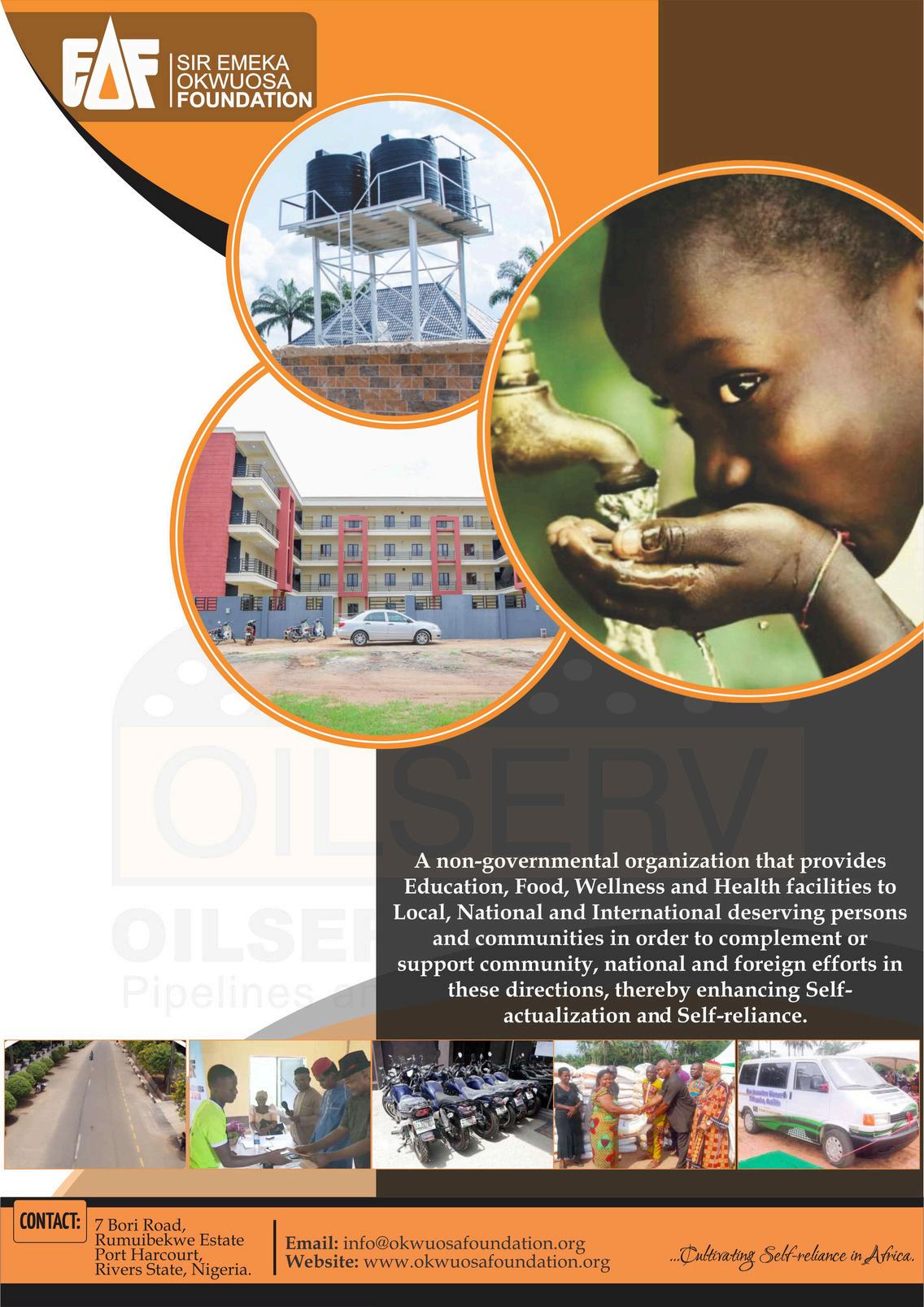


Education

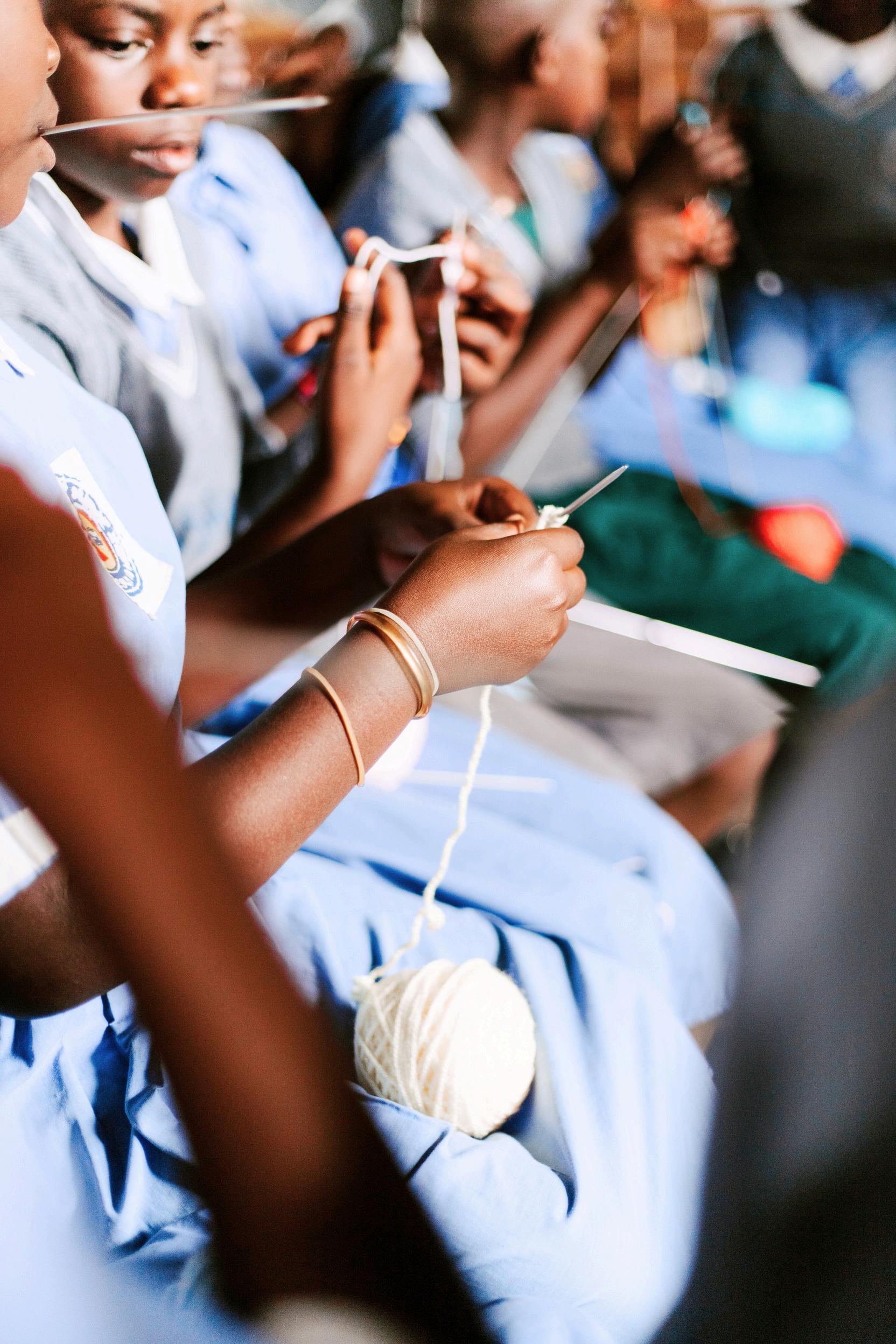




Education


Educational Leader (E.L.) Africa magazine provides in-depth information about the most critical issues facing education leaders today in the Sub-Saharan Africa (SSA). Published four times a year, each issue has a specific focus area and the articles are written by education experts and practitioners.
The E.L. Africa Magazine gives education leaders and school principals/headmasters the resources, strategies, and inspiration required to prepare students for success. The magazine also stirs school administrators toward openly discussing skills and strategies to improve schools and advance learning. It empowers these administrators to build an improved education system that is exceptional, independent and capable of self-sustaining with the correct mindset, by collaboratively sharing their skills. It also highlights their commitments and serves as an African solution to African problems.
Therefore, the E.L. Africa is a paradigm shift, viewing the change in the education systems from the lens of experts and the school principals that implement/execute the education policies in the schools.
We embarked on this game-changing project as an inspiration to other educators to improve the education system in SSA. When you share your knowledge, skills and celebrate others without being apologetic, you feel fulfilled. It’s so important.
Educational Leader Africa Five Years Strong, and Just Getting Started!
It’s hard to believe it’s been five years since we launched Educational Leader Africa magazine. What a journey it has been! We are incredibly proud of what we’ve accomplished since our inception during the height of the pandemic
Our mission was clear: to bridge the gap in leadership and learning continuity across Africa, especially during uncertain times Despite limited resources and less access to advanced tools compared to what we have in the United States, education leaders across Africa rose to the challenge. We guided and supported them in staying connected with their teams and students through platforms like WhatsApp, Zoom, and Microsoft Teams ensuring that learning never stopped
The virtual conversations we hosted with education leaders from multiple African countries sparked new collaborations among education officers, district, municipal
and zonal leaders Our virtual professional development sessions with principals and headteachers focused on leadership enhancement and instructional effectiveness, leading to tangible improvements in schools across the continent
Our school leadership magazine became more than just a publication it became a voice, a platform, and a catalyst for change Each edition featured inspiring stories, innovative practices, research-based strategies, and the shared experiences of school leaders navigating complex educational landscapes We highlighted successes, addressed challenges, and celebrated the resilience of educators across the continent
Over the past five years, Educational Leader Africa has grown into a trusted resource for professional learning and cross-border collaboration We've seen leaders gain confidence, schools improve outcomes, and communities begin to value education in new and powerful ways.
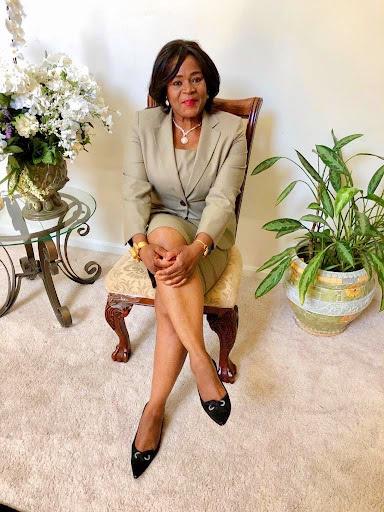
We have published a wide range of topics, including strong school leadership, mentoring for new administrators, equitable and quality education, the digitalization of school management in Africa, the use of data to improve learning, and the safeguarding of students’ data in the shift toward automation We have also explored other critical themes such as resource provision, management, and much more In addition, we have proudly featured several school districts and highlighted their Leaders to Learn From Our signature section, Principally Speaking, provides principals with a platform to share their stories, showcase their schools, and demonstrate their leadership skills.
Dr. Ada Omile Executive Director E.L. Africa Magazine
My Co-Founder, Dr Frances Ufondu, and I want to extend our heartfelt thanks to our amazing advisory board members your unwavering support, both financially and beyond, has been instrumental to our success. From strategic guidance to championing our mission behind the scenes, your contributions have helped shape the direction and growth of Educational Leader Africa Your belief in the power of educational leadership across Africa has fueled our drive, and we’re incredibly grateful for your partnership over these five transformative years.
As we celebrate this milestone, we remain committed to our vision: empoweringeducationalleaders,shapingfutures,and transforminglearningacrossAfrica. There’s still much work to be done but if the last five years have shown us anything, it’s that with collaboration, creativity, and commitment, progress is not only possible, it's inevitable
To all our contributors, readers, partners, and supporters, thankyou Here's to the next chapter of leadership, learning, and lasting impact.
Dr.FrancesUfondu
Co-FounderandEditorforE.L.AfricaMagazine
Five years ago, Educational Leader Africa (E L Africa) Magazine was born from a simple yet powerful conviction: that the most impactful solutions to Africa's educational challenges lie within Africa itself As co-founders, we watched firsthand the incredible dedication of educators across the continent teachers and leaders who, despite often working with limited resources and limited access to the latest global research, show an unwavering passion for their students' futures
Our journey began with a question: What if we could create a platform that not only shared global best practices but also celebrated and amplified the innovative solutions already thriving in African schools? What if we could bridge the gap, bringing research-backed strategies and professional development to the doorsteps of those who needed them most, all while fostering a vibrant community of practice?
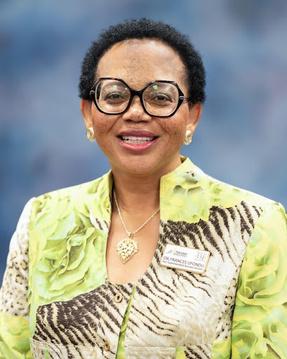
This vision became a reality Over the past five years, E L Africa has grown into more than just a magazine; it's a living testament to the power of shared knowledge and collective action We've published several articles, each one a testament to the resilience, creativity, and expertise of African educational leaders. From innovative approaches to STEM education in rural communities to new leadership models for urban schools, our pages have become a forum for sharing, learning, and celebrating success
We believe that true empowerment comes from providing a space for leaders to tell their own stories, share their own innovations, and build a network of support E L Africa Magazine is a space for that It’s where leaders can find practical, actionable strategies tailored to their unique contexts, and where they can find inspiration in the successes of their peers It's a space where we can loudly and proudly lead our schools toward a brighter future, together.
AHeartfeltThankYoutoOurCommunity
This milestone would not have been possible without our incredible community To our dedicated readers, thank you for inviting us into your schools and classrooms Your commitment to professional growth and your willingness to share your own expertise are the lifeblood of this magazine
Dr. Frances Ufondu Co-Founder
A special thank you to our esteemed BoardMembers, whose guidance, wisdom, and unwavering support have been instrumental in our journey Your belief in our mission has fueled us from day one
E L Africa
Magazine
And to all our sponsorsandsupporters, your contributions have enabled us to keep this platform accessible and free, ensuring that every educator, regardless of their location or resources, has access to this vital information
Congratulations to our CEO, Dr Ada Omile and Content Creative Designer, Ms Chinenye Omile for the countless hours that were dedicated every quarter to put the magazine in print We appreciate your dedication and effort each time an issue is published As we look ahead to the next five years, our mission remains the same. We invite you to continue sharing your stories of success and innovation Write to us about the events, programs, and opportunities at your schools Let's keep building this bridge of knowledge, one shared story at a time Together, we can empower generations of leaders and transform education across the continent
EducationalLeaderAfrica–FiveYearsStrongwhileBuildingBridges!
Mr. Temitope Mustapha - Nigeria
Mr Chris Onwuka - Nigeria
Mr Sanvee Elmut Pinto - Togo
Mr Pascal T Soklou - Togo
Dr. Ada Omile
Dr. Frances Ufondu
Dr. Evelyn Mamman
Ricky Buffington
Dr. Eugene Otuonye
Dr. Wilhemina Mckinney
Dr. Mary Okafor
Mrs. Lydia Tumuhaiwe
Ms. Chinenye Omile
Educational Leadership Africa Magazine (ISSN 2693-2806) is published quarterly in March, June, September, December by Educational Leadership Consultant Group (ELCG) in Virginia, USA. ELCG is an organization focused on training and development of education leaders The E L Africa magazine, a component of ELCG, is the voice for education leaders, principals, assistant principals, and others in education across SubSaharan Africa. The statements, opinions, and advertisements expressed herein are those of individual authors and companies and do not necessarily represent the views of E L Africa magazine or the ELCG
ArticleSubmission:Submission on topics relevant to school leadership are requested. Email ideas and articles to elafricamagazine@gmail com
Ada Omile
Frances Ufondu
Richard Buffington - President
Steven Dike
Wilhelmina McKinney
Evelyn Mamman
Eugene Otuonye
James Lambart Onyait
Mary Young
Alfred Okello
Aaron Chansa
Darric Dennis
James Okewa
In this anniversary issue, see what our E L Africa community is saying about the school leadership magazine in our Principally Speaking (pg. 19). Read about Strategic Resourcing for Education in Sub-Saharan Africa - Building Sustainable Pathways to Quality Learning (pg. 15), and then check out The Many Different Hats a School Counselor Wears (pg. 50).
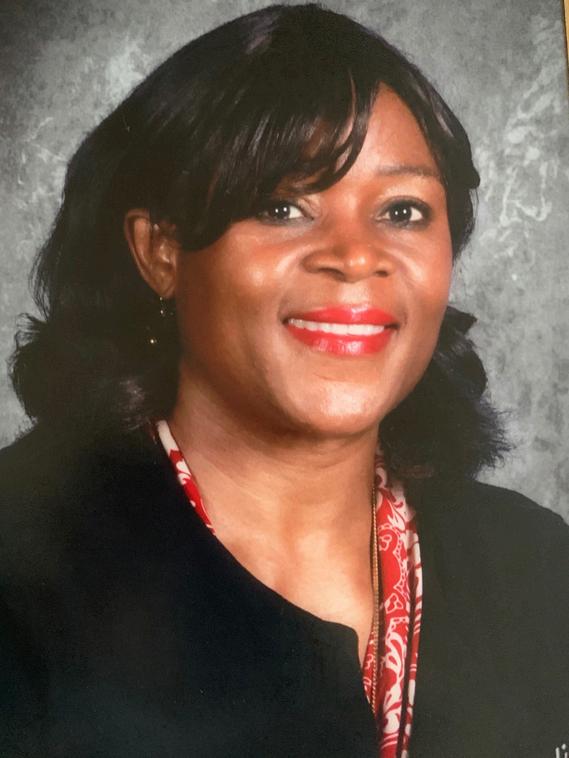
Dr. Omile earned her doctorate degree in Education Leadership & Supervision K-12, from Argosy University, Washington D.C., Post doctoral Certificate in Education Leadership & Administration from George Washington University, Washington DC Master of Science in Computer & Information Systems, Master of Arts in Learning Disabilities, both from Clark Atlanta University, Atlanta Georgia She has 30 years of experience in Education and Leadership in the United States of America
Her doctoral research in 2011 was focused on providing professional learning to school principals in Anambra State, Nigeria The result of the research showed a glaring gap in practice To address the gap, she started the Education Leadership Consultant Group (ELCG), a Non-profit organization that provides professional learning on effective schools to school principals and directors of private proprietors of schools in Africa. Recently, she concluded that we need to create a forum to reach more school principals throughout the Sub-Saharan Africa, hence this E.L. Africa magazine.

Dr. Omile and Dr. Ufondu attended the same high school and college in Nigeria and have dedicated their career and life’s work to improving leadership capacity for educational leaders in the hopes of positively improving learning for our students This E L Africa Magazine is designed to give educational leaders the tools to enhance and empower their teachers as they collaborate to improve teaching and learning for students.
Dr. Ufondu earned her Doctorate of Education in Organizational Leadership from University of LaVerne, California She earned a California Professional Administrative Services Credential; a Clear Multiple Subject Teaching Credential; a Master’s of Arts in Education Administration from University of Benin, Nigeria and a Bachelors of Science in Vocational Home Economics Education from University of Nigeria, Nsukka.
In addition, she received a Professional Certificate in Accounting for Governmental and Nonprofit Organizations; a Chief Business Officer (CBO) certification through California Association of School Business Officials Partner Training Program; Association of California School Administrators (ACSA) Certification in Curriculum and Instruction Leadership and Leadership Coaching.
Her dissertation in 2005 was focused on an in-depth research of skills required by principals to effectively implement the Public School Accountability Act in California. The findings indicated that principals perceived skills in visionary leadership as very important The study also empowered staff members and students to reach high levels of performance; creating and communicating a school vision and aligning financial, human and material resources with the vision; student assessment, gathering, analyzing, and using data to inform decision making; demonstrating and understanding of curricular alignment to ensure improved performance and designing, evaluating, and refining curricular remediation programs
If you’re an expert in education, please share your knowledge and experience with your fellow school leaders in E L Africa magazine Write about one of the following themes or submit an article on another topic of interest to principals, assistant principals, or aspiring principals
BUILDING RESILIENCE IN STUDENTS AND STAFF
LEVERAGING ARTIFICIAL INTELLIGENCE (AI) FOR EQUITABLE LEARNING
TRANSFORMING EDUCATION THROUGH DATA-DRIVEN DECISION-MAKING
E L Africa is YOUR magazine help make it an even more valuable resource by writing an article or passing these themes on to a colleague who has a great program or unique perspective.
Manuscripts should explore one theme or other topics of professional interest to secondary school principals. Manuscripts are evaluated by ELCG/E.L. Africa magazine staff members and are judged on their relevance, interest to principals, timeliness, originality, readability, and credibility. E.L. Africa magazine seeks articles that:
Describe best practices and exemplary programs objectively and include evidence of success as well as a discussion of problems
Explain how principals can act on the information
Include advice, resources, and examples
Offer opinions on some topic of professional interest to principals
Manuscripts should be no more than 2,000 words, including references, but may include additional supplemental material Successful manuscripts are written in a tone and style appropriate to a magazine; are well-organized; clearly establish the purpose of the article; use specific examples it is best to show, and adhere to the rules of grammar
Please send your manuscript to elafricamagazine@gmail com and include: The manuscript prepared in MS Word
A cover letter that indicates your intention to submit the manuscript to E L Africa magazine and stipulates whether the manuscript has been submitted elsewhere.
Contact information for each author: school and title, telephone number, and e-mail address.
A two-sentence author biography. The first sentence should include a current title, school and e-mail address; the condition sentence should highlight key accomplishments or reinforce your authority in discussing the topic.
If you’d like to send photos to accompany your article, please attach the JPEG files to an email and send them to elcgtraining@yahoo.com. If no photos are available, E.L. Africa will select file or stock art to enhance the article.
This year marks a special milestone as Educational Leader Africa (E.L. Africa Magazine) turns five!
For half a decade, we have inspired and empowered education leaders across Sub-Saharan Africa by sharing relevant insights, innovative practices, and thought-provoking topics that drive the vision of effective schools. From strong leadership and mentorship to digital transformation, equity in education, and safeguarding student data, our commitment has always been to provide knowledge that matters.
Most importantly, our journey has been shaped by you our vibrant community of readers. Your voices, reflections, and success stories continue to inspire us to serve with purpose
HERE’S WHAT OUR ADVISORY BOARD MEMBERS ARE SAYING!
Mr.RickyBuffington E.L.AfricaAdvisoryBoardChair
ABeaconOfHope:E.L.AfricaMagazine'sMissiontoAdvance Education
E L Africa Magazine is more than just a quarterly publication it is a movement dedicated to the educational advancement of students in Sub-Saharan Africa. The magazine serves as a platform for sharing innovative teaching methods and perspectives, and it also drives tangible change through fundraising and resource provision. At the heart of this necessary effort is a committed team of leaders, all driven by a shared vision of progress.
The direction of E. L. Africa Magazine is guided by a CoFounders and distinguished Board of Directors. The board's role is to provide leadership, direction, and recommendations that advise the magazine's strategic initiatives. The board members
are committed to the long-term vision of empowering students across Sub-Saharan Africa.
To ensure the magazine's mission is aligned with the best practices of the non-profit sector, the team benefits from the valuable mentorship of Larry Laws, President and CEO of First Home Alliance. Laws provides guidance from the perspective of a seasoned non-profit leader, offering insights that strengthen the magazine's philanthropic efforts. This partnership, along with networking with various organizations, ensures a broad and effective approach to serving students in need.
The content of E. L. Africa Magazine is enriched by the personal and professional experiences of its contributors. Through a quarterly publication, current and retired school professionals, peers, and affiliated experts share their personal leadership philosophies and visions
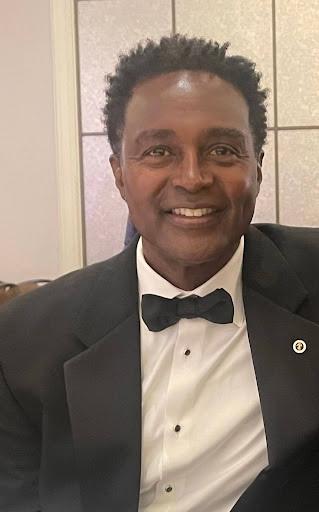
These articles are not merely stories; they are a historical repository of knowledge that enhances teaching methods and offers new perspectives for reaching students By documenting and disseminating this wisdom, the magazine provides a valuable resource for educators seeking to improve their craft and inspire a new generation of learners
The magazine’s mission extends beyond its pages to directly support educational institutions One of its key initiatives focuses on providing essential resources to schools in the region For example, E L Africa Magazine continues to accept donations to provide desks, chairs, and whiteboards for the Nimo Girls Secondary School in Nigeria
The organization relies on the generosity of supporters through fundraising, grants, and donations to make these projects possible. Every contribution directly empowers students by creating a better learning environment. It is an honor and a pleasure to know and work with this fine team of educational laborers for progress.
Dr.EvelynMamman AssistantSuperintendentforCurriculumandInstruction SouthBrunswickSchoolDistrict,NewJersey
E.L.AfricaMagazineAdvisoryBoardMember
E.L.AfricaMagazine:APlatformforPride,Possibility,and Progress
E L Africa Magazine is more than just a publication It is a voice, a movement, and a source of inspiration Created to highlight the brilliance and resilience of Africa, the magazine stands as a beacon of empowerment, telling the stories that deserve to be heard and celebrating the people who are shaping the continent’s future.
At its heart, E.L. Africa is about representation and pride. Every issue uplifts African voices, showcases cultural richness, and reminds readers of the strength and creativity found in every corner of the continent. By spotlighting innovators, leaders, and everyday changemakers, the magazine proves that Africa’s
greatest resource is its people.
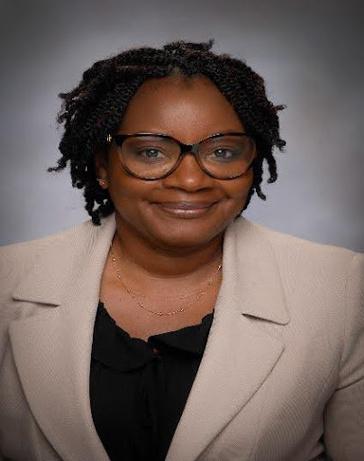
The magazine also serves as a bridge, connecting local communities with the global stage. Through powerful storytelling, it opens the world’s eyes to Africa’s talent, progress, and potential, challenging outdated narratives and replacing them with stories of excellence, innovation, and hope
Above all, E L Africa inspires action Readers don’t just consume stories; they are encouraged to dream bigger, to invest in their communities, and to see themselves as part of Africa’s unfolding success story
With every edition, E L Africa Magazine affirms its mission: to ignite pride, foster unity, and amplify the voices that are transforming Africa and beyond
WilheminaMcKinney,Ed.D. Retirededucatorwith35+yearsofexperienceasaclassroomteacher PreviousInstructionalSystemsSpecialist,HeadquartersfortheDepartmentof DefenseEducationActivity(DoDEA)
InvestinginEducators,InvestingintheFuture
E L Africa Magazine is more than just a publication It is a voice, a movement, and a source of inspiration Created to highlight the brilliance and resilience of Africa, the magazine stands as a beacon of empowerment, telling the stories that deserve to be heard and celebrating the people who are shaping the continent’s future.
At its heart, E.L. Africa is about representation and pride. Every issue uplifts African voices, showcases cultural richness, and reminds readers of the strength and creativity found in every corner of the continent. By spotlighting innovators, leaders, and everyday changemakers, the magazine proves that Africa’s
greatest resource is its people.
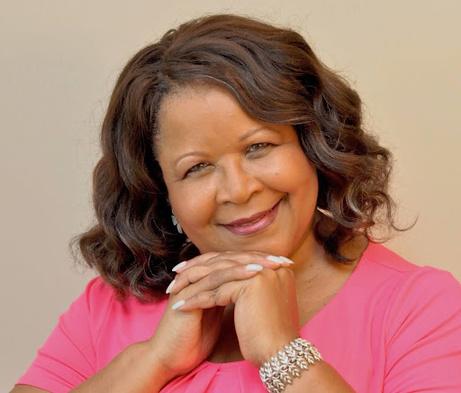

The magazine also serves as a bridge, connecting local communities with the global stage. Through powerful storytelling, it opens the world’s eyes to Africa’s talent, progress, and potential, challenging outdated narratives and replacing them with stories of excellence, innovation, and hope
Above all, E L Africa inspires action Readers don’t just consume stories; they are encouraged to dream bigger, to invest in their communities, and to see themselves as part of Africa’s unfolding success story
With every edition, E L Africa Magazine affirms its mission: to ignite pride, foster unity, and amplify the voices that are transforming Africa and beyond
The E L Africa magazine has sparked school leadership alliances across the African continent Dr Ada Omile is part of the creation of the African Center for School Leadership in Kigali, Rwanda.
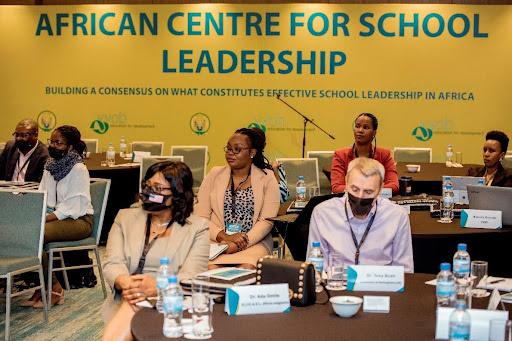
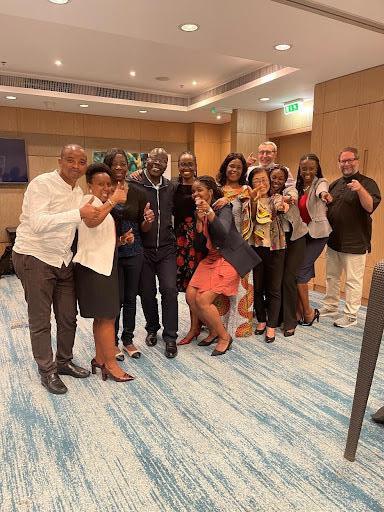
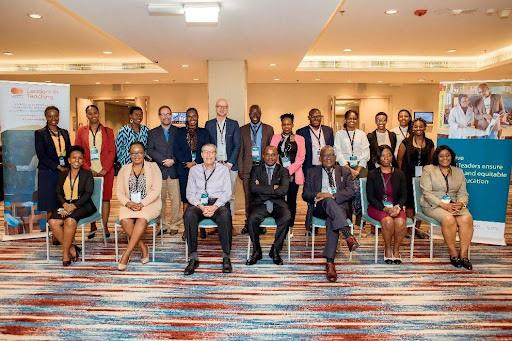
By:AdaOmile
Family engagement is a shared responsibility between schools, families, and community organizations. When schools intentionally involve families in meaningful ways, and families actively support their children’s learning and development, students benefit from a strong, united foundation for success
Here are practical strategies to strengthen partnerships with families:
1. Cultivate Trust and Respect
Begin by listening. Ask families about their children their strengths, interests, and challenges and use this knowledge to guide instruction. Respectful dialogue and mutual understanding create a sense of shared purpose
2. Communicate Frequently and Consistently
Make it easy for families to stay connected Share your contact information and use multiple communication channels calls, texts, emails, or apps. Survey families to learn their preferred methods. Where available, connect them with a family liaison to bridge home and school partnerships.
3. Keep Language Simple and Accessible
Ensure messages are clear and easy to understand Provide translations and interpreter services when needed, and always encourage two-way communication so families feel their voices are valued.
4. Integrate Families into Learning
Design lessons that welcome family participation and reflect students’ cultural backgrounds Share resources that families can use at home to reinforce learning and strengthen connections between the classroom and the household When families and schools work together, they build trust, share responsibility, and create environments where students thrive academically, socially, and emotionally.
By:LydiaTumuhairwe
Education in Sub-Saharan Africa sits at a critical crossroads. The region has made remarkable strides in expanding access to education since the early 2000s, driven largely by global commitments such as Education for All policies and the Millennium Development Goals (MDGs) Primary school enrolment has grown substantially, gender gaps have narrowed, and more governments in the Sub-Sahara region are recognizing education as a constitutional right (UNESCO, 2015) Yet, despite these achievements, over 98 million children remain out of school, and many who are enrolled struggle to acquire basic literacy and numeracy skills (UNESCO, 2023).
The root of the problem often lies in resource limitations and inefficiencies Education systems in Sub-Saharan Africa are underfunded, heavily reliant on external aid, and stretched by rapid population growth The question is not only about securing more resources, but also about deploying them strategically to maximize impact Strategic resourcing, therefore, is the deliberate mobilization, allocation, and utilization of financial, human, and material resources in ways that deliver equitable, inclusive, and quality education for all
I will explore the current state of education financing in SubSaharan Africa, highlighting key strategies for effective resourcing, and making the case for innovative, sustainable, and equitable approaches that can transform education outcomes in the region.
Education financing in Sub-Saharan Africa comes from multiple streams, which include government budgets, household contributions, private sector investments, and development aid However, the landscape is fraught with gaps and inequalities
Government Budgets: On average, Sub-Saharan Africa governments allocate about 16-18% of total public expenditure to education, below the UNESCO benchmark of 20% (UNESCO Institute for Statistics, 2022) In addition, per capita spending is low due to constrained tax revenues and competing demands such as healthcare, security, and infrastructure (World Bank, 2022).
Household Spending: Families shoulder a disproportionate burden. In some countries, households contribute nearly 40% of total education spending, often through school fees, uniforms, and learning materials (UNICEF, 2021) in public schools In private education institutions, the households contribute nearly 100% in school fees This deepens inequality since poor families struggle to meet such costs
DevelopmentAssistance: Aid remains crucial, but donor funding is volatile and accounts for only about 10% of
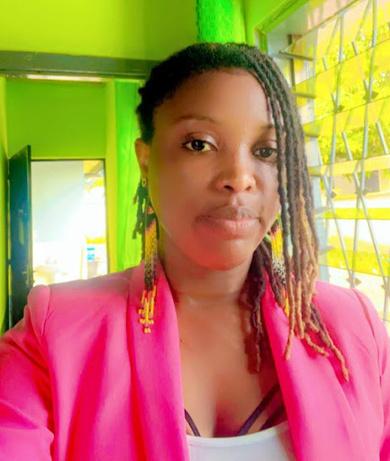
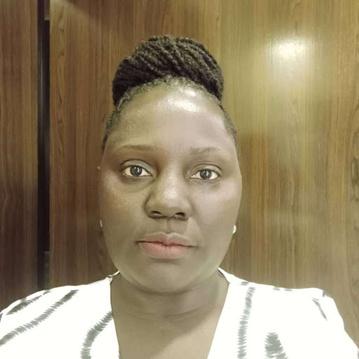
total education expenditure in Sub-Saharan Africa (Global Education Monitoring Report, 2020). For example, Trump's aid policies including a sweeping freeze on development aid, massive reduction in USAID’s capacity, and program cancellations have deeply destabilized education systems across Sub-Saharan Africa
Private Sector: Engagement remains limited, despite the potential of businesses, philanthropic organizations, and social enterprises to supplement public resources (OECD, 2019).
This fragmented and underfunded system underscores the urgency of adopting strategic resourcing models that move beyond dependency to sustainability and efficiency.
Sustainable education financing should start with robust domestic resource mobilization by expanding the tax base through progressive taxation and reducing illicit financial flows The region loses an estimated $50 billion annually to tax avoidance and capital flight (UNECA, 2020) Prioritizing education in national budgets will go a long way in resourcing education Education needs to be treated as an investment in human capital and economic growth Studies show that each additional year of schooling raises average earnings by 10% (Psacharopoulos & Patrinos, 2018)
Ring-fencing education funds to protect them from political shifts and fiscal crises is an efficient and effective way of resourcing education. Countries like Ethiopia and Rwanda have demonstrated that deliberate budget prioritization for education can yield tangible improvements in enrolment and learning outcomes (World Bank, 2019).
More money alone does not guarantee better results, but efficient allocation and spending of funds ensuring they are allocated to areas of highest impact is very important For example, evidence shows ECD investments deliver returns of up to 13% per annum in future earnings and social benefits, and teacher quality is the most important in-school factor affecting learning (World Bank, 2018) Therefore, investments in teacher continuous professional development, motivation, and support systems are critical EdTech innovations such as Kenya’s Digital Literacy Programme can expand access in rural areas when deployed strategically, and expanding technical and vocational education as well as secondary education helps to address Africa’s youth unemployment crisis (African Development Bank, 2020) Forming Public-Private Partnerships (PPPs) can be a key strategic resourcing approach Engaging the private sector can unlock new resources and expertise. For example, engaging with telecom companies to partner on digital learning platforms (MTN’s education projects), faith-based organizations, which already manage over 30% of schools in some Sub-Saharan countries (World Bank, 2017), and Co-operate Social responsibility investments by multinational companies in literacy, school infrastructure, or scholarships The strategic Public Private Partnerships should be governed by accountability frameworks to ensure equity and quality are not compromised
Sub-Saharan African countries need to embrace innovative emerging financing models because traditional aid and budgets have proven rather insufficient These models might include education bonds issued by governments or development banks, results-based financing, where funds are released upon achieving measurable outcomes (like literacy improvements), impact investing in education start-ups, social enterprises, and diaspora bonds that tap into Africa’s diaspora remittances, which reached $53 billion in 2022 (World Bank, 2022).
Sub-Saharan African countries need to harness technology and EdTech. Digital solutions such as radio, mobile apps, and online teacher training can costeffectively scale education During COVID-19, countries like Uganda and Nigeria relied on blended models to keep learners engaged (UNESCO, 2021) Also, Rwanda prioritized ICT and teacher training, supported by consistent budget allocation that saw literacy and enrollment steadily improved (World Bank, 2019) The challenge is ensuring affordability, inclusivity, and curriculum relevance.
Strategic resourcing must not only expand access but also address inequalities ensuring equity and inclusion. For example, removing barriers such as early marriage and period poverty. Every additional year of schooling for girls reduces the risk of child marriage by 6% (UNICEF, 2020), infrastructure, solar-powered digital devices, and teacher incentives can bridge the ruralurban divide Also, about 9 million children with disabilities in Sub-Saharan Africa are out of school due
to lack of inclusive practices and facilities (World Bank, 2021), and nearly 20% of out-of-school children in SubSaharan Africa live in conflict zones (UNHCR, 2020). Initiatives like school feeding programs, cash transfers, and scholarship schemes have shown strong results in reducing dropout rates and improving equity and inclusion. For example, in Kenya the capitation grants and school feeding programs boosted enrollment in arid regions (UNICEF, 2021).
Without strong governance and accountability, even the best resourcing strategies falter Effective systems require transparency through publishing education budgets and expenditures in public media, community participation through School Management Committees to monitor resource use, data driven decisions, Education Management Information Systems (EMIS) for targeting, and strengthening oversight and audits to reduce leakage (corruption) estimated to drain 20-30% of education funds in some countries in the Sub-Saharan Africa. (Transparency International, 2021).
All in all, the pathway forward demands a paradigm shift from dependency to sustainability where domestic capacity must drive financing, from uniform allocation to targeted investment prioritizing marginalized groups, from inputs to outcomes where financing is tied to results, and from shortterm fixes to resilience where education systems must withstand shocks especially natural calamities like COVID’19 Governments, donors, private actors, and communities share responsibility to finance education as a public good and a right Strategic resourcing is not just about injecting more money in the sector It is about smarter investments, inclusivity, and accountability With nearly half of Africa’s population under 18, investing wisely in education is the surest path to prosperity, peace, and human dignity. The challenge is formidable, but the promise is greater With bold political will and innovative financing, Sub-Saharan Africa can transform its youthful population into the continent’s greatest asset.
References AfricanDevelopmentBank(2020) AfricanEconomicOutlook 2020
GlobalEducationMonitoringReport(2020) Inclusionand Education:AllMeansAll UNESCO Heckman,J (2011) Theeconomicsofinequality:Thevalueof earlychildhoodeducation AmericanEducator OECD(2019) EngagingthePrivateSectorinDevelopment Psacharopoulos,G,&Patrinos,H (2018) Returnstoinvestment ineducation:Adecennialreviewofthegloballiterature EducationEconomics
TransparencyInternational(2021) CorruptioninEducation UNECA(2020) IllicitFinancialFlowsinAfrica UNESCO(2015,2020,2021,2023).GlobalEducationMonitoring Reports
UNICEF(2020,2021,2022) TheStateofEducationReports UNHCR(2020) SteppingUp:RefugeeEducationinCrisis WorldBank(2017,2018,2019,2021,2022) WorldDevelopment Reports&EducationSectorAnalyses

We will transform your professional learning, increase educator capacity, and improve student achievement
We focus on Better Leadership, Better Teaching, & Improved School Systems.
ELCG has supported leaders at all levels to transform their systems into true learning systems, where all educators engage in a measurable and scalable cycle of improvement. Our high-impact professional services help systems set an attainable vision for an effective and equitable system of professional learning that leads to improved leader, educator, and student outcomes.
We provide our partners with tools to transform professional learning, increase educator capacity, and improve student achievement. Through our face-to-face, virtual, and hybrid learning experiences, we help ensure your professional learning is standards-driven, jobembedded, and focused on improved instruction and better results for all students.
We help maximize the impact of professional learning in schools, districts, states, and organizations by:
Building the capacity of central office leaders to set a vision for equity and excellence and increase the effectiveness in leading change
Transforming school leadership by developing principals and aspiring principals with deep understanding and skills in leading learning and creating cultures of collective responsibility.
Empowering coaches and mentor teachers with the skills to support beginning and veteran teachers to meet their classroom challenges.
Ensuring that all teacher learning teams engage in a cycle of continuous improvement focused on meeting their students’ unique learning needs.
Assessing the impact of professional learning in your school or system and measure its alignment to the Standards for Professional Learning.
Contact us: elcgtraining@gmail com or elafricamagazine@gmail com
Adapted from: Sarah McKibben, ASCD
What if instead of going head-to-head with your most challenging student, you created an ally in him/her? Grace Dearborn shared a strategy for making that happen: the "Two-by-Ten."
Dearborn explained that by spending two minutes a day for 10 consecutive days getting to know a disruptive student, teachers can begin establishing an initial connection. Historically referred to as the "twominute intervention" by researcher Raymond Wlodkowski. The Two-by-Ten strategy is a way to not only break the ice but also form the foundation for a sustainable relationship and better classroom behavior Two-by-Ten gives a disruptive student what he is seeking in the first place: a positive connection with an adult.
Safety is a fundamental human need and if kids don't feel it, they're going to ask for it by acting out A student is more likely communicating the message, "Would you connect with me, so I can let down my guard?" Some of the students would be more receptive to the conversations than others but will warm up to attention by the second week.
Keeping the content of the conversations centered on the student's personal interests is essential to making the strategy work. Teachers can use an interest inventory to ask questions or just focus on whatever the kid is talking about to his friends or what he's wearing his sneakers, backpack, anything at all, that's a sure clue
The discussions, however, should extend beyond the typical "how are you today, nice to see you, even talking about what the student shared in class or wrote about in an exercise does not have the same effect as when teachers probe more deeply The focus of Two-by-Ten is just getting to know the child outside of school Find out what his favorite food is, what his favorite hobby is, how did his baseball game go, etc. If [your approach is] authentic, the child will know it.
When a student is especially "resistant and shutdown," experts recommend striking up a conversation with one of the student's friends within earshot and eventually drawing that student in, even if it takes several days.
Two-by-Ten is one of the most powerful relationshipchanging strategies, and teachers should build the time into their lesson plans when other students are engaged in an assignment or project that requires less … direct teaching.
Allotting time for shorter conversations can also be beneficial as long as they occur every day (not counting weekends) because consistency is what "allows the walls to come down Thus "half a minute a day for 10 days is better than one 20-minute conversation because [the student] needs that ongoing connection to relax."
AlfredOkello RetiredHeadTeacher Kampala,Uganda
After dedicating over 35 years to teaching and school leadership, I retired in July 2020 with a deep sense of fulfillment. Yet retirement did not mark the end of my journey in education, it signaled a new chapter. Around that time, I was introduced to Educational Leadership Africa Magazine, a publication that has since become an indispensable resource in my continued efforts to train and mentor school leaders across Uganda and beyond. I was later honoured to be appointed to its Advisory Board.
The magazine arrived at a pivotal moment. As I transitioned from active leadership to a mentoring role, I sought fresh insights and relevant tools to support others effectively. It delivered precisely that. Its rich, contextually grounded content offered practical strategies and thought-provoking perspectives tailored to the realities faced by educators across the continent

What distinguishes Educational Leadership Africa Magazine is its relevance to the African educational landscape. The articles explore an array of critical themes such as professional development, team building, management of change, technology integration in education, instructional leadership, assessment practices, resource constraints, policy implementation, community engagement, and effective teaching strategies. The magazine presents ideas that reflect our lived experiences, making it an invaluable guide for school leaders navigating complex environments. These insights have enriched the training sessions I facilitate, allowing me to deliver content that is both practical and transformative.
The magazine has also strengthened my mentorship of emerging school leaders, many of whom grapple with balancing administrative duties, pedagogical leadership, staff management, and community expectations Its articles provide a foundation for meaningful dialogue and guidance rooted in both experience and current best practices
In essence, Educational Leadership Africa Magazine has been instrumental in my post-retirement journey, keeping me engaged, informed, and impactful
DarricDennis SupervisingPrincipal&EducationDirector VineSchoolSystemofChrist
Monrovia,Liberia
GreaterMonroviaDistrict#1d
President,NationalAssociationofLiberiaSchoolPrincipals-NALSP RepublicofLiberia
Permit me to corroborate my reflection on the statement that has resonated with me for a couple of years now – a classroom beyond the four walls That’s my impression of E L Africa Magazine As a lifelong learner, I am always excited to learn new things, particularly from people within the same community of practice Becoming a leader in your field takes knowledge, association, and experience Over the years, the E L Africa Magazine family has created the enabling environment that has helped me gain access to all three Thus, shaping my leadership perspective and improving my decision-making skills as a principal, educator, and administrator.

With all due respect to every aspect of the Magazine, the “Principally Speaking” and PRINCI-POLL sections have stood out for me For example, in the 2024 edition, the PRINCI-POLL raised a question “How does your school enhance students’ learning?” this question recorded Teachers’ Motivation and Showing Concern at 94 7% Today, as President of the National Association of Liberia School Principals, I am privileged to be partnering with the Ministry of Education, Republic of Liberia to conduct the “School Leaders and Teachers Well-being Surveys” to improve school leadership, teaching and learning in Liberia. Another example is the Principally Speaking section, the 2025 edition, where the writer shared “How Cutting-Edge Technology is Bridging the Learning Gap And Paving A Way For A Bright Future in My School.” As an advocate for technology integration into teaching and learning in Liberian Schools, this article remains a great reference for me. Through your advocacy, it makes sense to do regional comparisons. Everything cannot and should not always be about the West.
Every time an edition is up, the sections I am excited to check are the “Principally Speaking” and PRINCI-POLL. And these sections have never gone unnoticed. They have never been short of ideas. Nor have they been disappointing.
With E.L. Africa Magazine, I am learning, unlearning, and relearning through every edition.
JamesJumaOkewa KisianSecondarySchool
Kisumu,Kenya
My name is James Juma Okewa, a trained teacher of Mathematics and Physics and an author of digital contents in Mathematics for Zeraki company. In 2017, I was a finalist in the National competition for ICT teacher of the year (ITOYA) representing Nyanza Region. I am also a Microsoft Certified Educator (MCE). I became a principal in 2020. The journey has been a mixture of excitement and challenges.
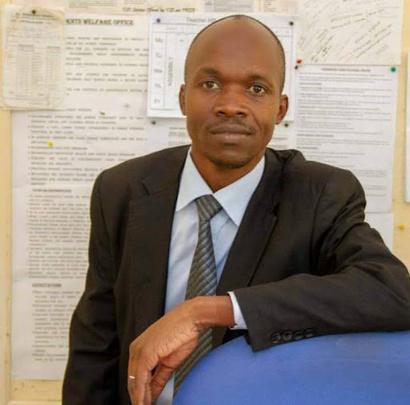
I started my journey as a principal at Odienya Mixed Secondary school in Kisumu county after promotion from Maranda National school in Siaya County, where I served as a head of Mathematics subject, Head of Mathematics Department, teacher representative to the school Board of Management and finally as a Deputy Principal From Maranda I was deployed to act as a principal for a short stint at Ndigwa Mixed Secondary school before I was deployed as a principal at Odienya Mixed Secondary school. This was a fire baptism having come from a big National school with a population of about 2500 students to a subcounty school with a population of 164 students. The predominant economic activity in the area Odienya was located was rice farming and fishing. The first challenge was the school environment of my new station. The school was located near the lake and the area experienced backflow that affected the school. For a period of about three months, the school grounds were flooded with water which affected the socioeconomic condition of the learners, thus affecting the teaching and learning due to insufficient resources.
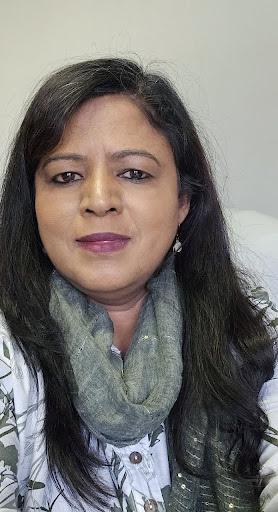
I served in the Odienya for 3 years and 6 months, thereafter got a transfer to Omuya secondary school in Seme subcounty , Kisumu County where I only served for 2 months. I was then transferred to Kirembe Secondary school located in Kisumu West subcounty, Kisumu county located next to the airport in Kisumu town The school served both the local community and non local community that was staying at the nearby local market Currently I am at Kisian Secondary school in Kisumu West Subcounty, Kisumu County which is in the neighbourhood with Kirembe Secondary school All these schools had their unique features in terms of the community in which they are located, the school environment, the learners and the parents Each of them gave and continues to give me unique experiences as a principal and this has helped me to sharpen my leadership skills to adapt to different conditions
I became an advisory board member of Educational Leadership Magazine This Magazine to a great extent helped me to overcome the initial culture shock I experienced in my first appointment as a Principal. The magazine articles have been very informative to me and have helped me to sharpen my skills as a school administrator. Various contributors have shared experiences and educated me on how to handle issues that sometimes appear quite challenging. The diversity in structures, systems and approaches to school administration across Africa that get featured in these magazines serve as important resource materials for school administrators. The magazines are unique in the sense that they feature real life experiences of school administrators across Africa and one can always relate to different situations featured in these magazines.
Personally, I have been able to improve my administrative skills after reading the success stories and articles that touch on effective management that are normally featured in these magazines. If distribution channels for physical magazines can be increased to ensure as many school administrators get access to these articles, more school administrators would benefit immensely from the rich information in these magazines. This would ensure more school administrators become effective.
OnyaitJamesLambert EducationOfficer,SeniorMan&ResearchConsultant NEBBITOWNSS–Nebbi-WestNileUganda WestNileRegion–NebbiDistrict,Uganda
I am enthralled to address you through the pages of our cherished E.L. Africa Magazine that showcases talents, creativity and achievements of our vibrant Schools/communities. As we reflect and celebrate our collective achievements, I am complete with pride and appreciativeness for the incredible journey of leadership in our various capacities’.
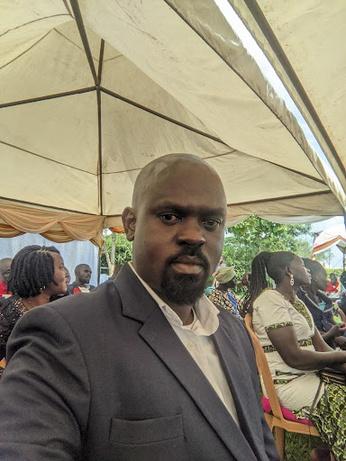
The inception of E L Africa Magazine in 2020 gave us an extra ordinary visionary leadership foundation We were able to navigate through unprecedented challenges during and post global COVID 19 Pandemic, demonstrating; resilience, adaptability and unwavering commitment The devotion of Dr Ada Omile and the team raised our enthusiasm as a community For example the issue of teenage pregnancy became acute and we had to raise awareness, campaign for the expectant girl children to stay and return to school amidst community backlash Some members lost their loved ones, businesses collapsed and difficulty in affordability of least fees and alarming School dropout rates among others were recorded This has taught us in addition to academic and co-curricular inspirations, the value of community, the importance of compassion and strength of unity In that, in the face of such adversity we came together and emerged victorious due to benchmarks enriched by the E.L. Magazine.
As we look to the future, nurture talents, expand horizons in pursuit of dreams with steady fast determination, I want specifically to say that because of E.L. Magazine, our school is no longer just a place of learning but a canvas on which students, teachers among others paint their aspirations. Through the publications we learnt our dynamic environment needed:
Transformational Leadership in which it was important to inspire and motivate teachers, as well as fostering a positive school culture. This approach built trust, encouraged collaboration and empowered educators.
Visionary Leadership: E.L. Magazine often highlighted the need for a clear, shared vision that promotes holistic success. We gained insights into creating and implementing a compelling vision that aligns with our school's values and goals.
Teacher Empowerment: It enabled us benchmark strategies for teacher development and support, which we implemented using a customized method that prioritized teacher well-being, growth and job satisfaction amidst scarcity in this “hard to reach area” of our school However we still have a lot like water scarcity challenges, housing, welfare, I C T inadequacies, Education and sexual Reproductive Health Rights (SRHR) barriers, Gender based Violence (GBV) and disability inclusion for our teachers and students is poor and invites partnerships in our journey
Data-Driven Decision Making: E L Africa Magazine frequently emphasized the value of using data and research to inform decision-making We have tried to leverage data to drive instructional improvements and student achievement However we still lack gadgets like computers and internet among others
Emotional Intelligence: We practically discovered and picked from the magazine the significance of emotional intelligence in leadership, including self-awareness, empathy and social skills which helped to woo some drop outs back to school We continued with our behavior change program in order to help learners discover who they are, learn life skills although we couldn’t do much due to financial resource inadequacies.
I am charmed and would like to extend my heartfelt gratitude for specific strategies or practices learnt and continue to be implemented such as:
Regular feedback and coaching with teachers to support their growth and development;
Collaborative planning environment encouraging teachers to work together to design engaging lessons and assessments
Personalized learning for tailoring instruction to meet the diverse needs of students, promoting more effective learning outcomes
School culture initiatives by prioritizing school culture, we have promoted social-emotional learning, inclusivity although minimal and respect among students and staff, democratic classes and restorative justice.
WOULDYOULIKETOBE CONSIDEREDFORA COLUMNINE.L.AFRICA MAGAZINE?
As we envisage celebrating this special edition, the excitement is immense and palpable. This will surely rekindle Old friendship, forge new connections and envision a future filled with possibilities. In our School we have Increased Student engagement due to implementing student-centered approaches and motivation ; Enhanced School Culture, by fostering a positive school culture there’s creation of a fair supportive and inclusive environment for students and staff.
SENDANEMAILTO ELAFRICAMAGAZINE@GMAIL.COM
This is therefore a moment for us to reflect a remarkable transformation and progress that has taken place over these few years. By and large I would like to direct my gratitude to the editorial team and contributors who have brought this magazine to life Your creativity and passion enriched our school culture and your efforts have given us a window into brilliance that exists within our school
I look forward to an exciting journey that lies ahead with confidence that as a team we will reach greater horizons of holistic excellence Let the magazine continue to inspire, give joy, pride for many more years to come
Overall, E L Africa Magazine has provided us with valuable insights, strategies and best practices, enhanced our leadership skills and promoted student success Knowledgeispower.ForGodandmycountry.
In a world where information travels faster than ever, the voices that truly matter often risk being drowned out Yet, in the midst of this noise, E L Africa Magazine has emerged as a trusted platform amplifying African stories, shaping narratives, and building bridges between the continent and its global diaspora
For readers, the magazine offers more than news; it offers perspective. It connects us to Africa’s rich heritage while engaging with the present realities of politics, business, education, and culture. Each issue serves as both a compass and a mirror guiding us through today’s challenges while reflecting the strength, resilience, and innovation that define the African spirit. In its pages, one discovers not just headlines, but role models and inspirations that make Africa’s story both relatable and aspirational.

For businesses and partners, E.L. Africa Magazine is more than a publication it is a network Advertising within its pages places brands directly before a community that values authenticity, empowerment, and progress. It provides a unique opportunity to reach leaders, innovators, and changemakers who are shaping the future of the continent and beyond. To be associated with this platform is to invest in credibility, visibility, and long-lasting impact.
For contributors, writers, and featured personalities, the magazine becomes a stage. It is a place where one’s voice does not simply echo in the void but resonates across borders. To publish in E.L. Africa is to join a community of thought leaders whose work inspires, challenges, and informs. It is to step into a legacy of influence that transcends geography and touches generations.
At its core, E.L. Africa Magazine is not just about telling stories it is about reclaiming them. It is about ensuring that African narratives are written by African voices, shaped by African realities, and celebrated by global audiences. In doing so, it affirms what we already know: that Africa is not a footnote to history, but a headline in the story of tomorrow.
As a reader, a partner, or a contributor, engaging with E.L. Africa Magazine is to invest in knowledge, visibility, and empowerment Most importantly, it is to participate in the ongoing work of building an Africa that is heard, respected, and celebrated
Dr.ThomasHlongwane
My name is Dr. Thomas Hlongwane. I currently work as a Departmental Official responsible for school governance in Gauteng Province, Department of Education, Republic of South Africa. Before then I worked as a High School principal from 2010 to 2023.
Reflecting on my experience as a principal over the years, reading Education Leadership Africa magazine provided valuable insights into effective leadership and education management Here are some of the lessons I have gained over the years:
Transformational Leadership: I have learned about the importance of transformational leadership in education, which involves inspiring and empowering teachers, students, and the community to work towards a common goal
Community Engagement: Building strong relationships with the community, including parents, local leaders, and businesses, is crucial for a school's success.
Innovative Learning: Education Leadership Africa magazine highlighted innovative approaches to learning, such as digital literacy, STEM education, and skills development, which have inspired me to implement new programs in my school particularly during covid 19 years. I remember the June 2020 edition had a topic, Leading through the Pandemic with lessons from Cameroon, Liberia and Nigeria.
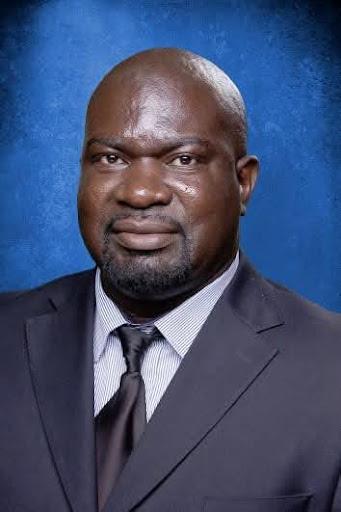
Decolonizing Curricula, I have also come across discussions on decolonizing curricula, emphasizing the importance of incorporating African perspectives and knowledge systems into education A very valuable lesson
Leadership Styles: different leadership styles, such as democratic, autocratic, and laissez-faire, and their impact on school performance were explored, allowing me to reflect on my own leadership approach
I learned to adapt my leadership style to the specific needs and context of my school, taking into account factors like resource constraints and community dynamics
By engaging with teachers, students, and the community, I developed a more collaborative approach to leadership, leading to improved academic performance and school culture. By the time I left in 2023 we had been number 1 in our circuit for 3 consecutive years.
In conclusion I would encourage all principals to continue reading Education Leadership Africa magazine and staying upto-date on the latest trends and research in education leadership in Africa. Connecting with other educational leaders and sharing experiences can provide valuable insights and support.
Dr.SampaJeffButler(PhD) ManyamaDaySecondarySchool
NorthwesternProvince,Zambia
Kalumbila
Educational Leader Africa Magazine is one of the best educational leadership document that aims at promoting good leadership practices that foster effective and transformative schools across the continent of Africa and the world at large
The magazine creates a shared vision across the African educational institutions As a consumer and contributor of the contents of this magazine, I have not only learnt a variety of strategies and best practices shared by other educational leaders in their various institutions but, I have also been able to experience great improvement in my leadership skills (strategies) and learner achievement.
From the year 2023 when I was exposed to this magazine, we have recorded some remarkable improvements in the school performance as follows:
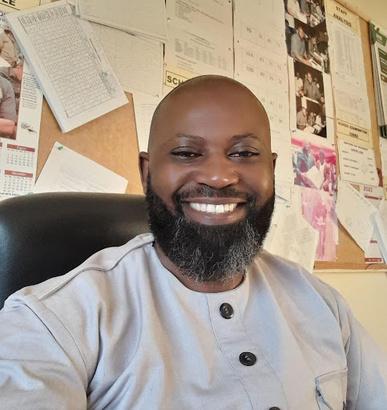
Some of the critical strategies that have led to such improvements are as follows:
Regular performance review (to hold teachers accountable).
Remedial teaching during prep time.
Coaching clinics (for specific subject areas).
Holiday learning/ teaching for syllabus coverage.
Integration of technology in teaching/ learning (use of white-boards & power-point).
Collaborative teaching/ learning.
Shared school vision (through set school goals/targets).
Student feedback questionnaire (to get feedback on how the school is doing).
Created a supportive learning environment which promoted inquiry-based learning, student-centered learning, competency-based learning, hands-on learning and collaborative learning spaces
It is our expectation that our school will continue excelling and prospering as we continue collaborating with other professional leaders through shared best practices
AmiduUmarFornahEsq. Principal,SylvanusMunicipalAcademySecondarySchool Makeni,NorthernRegion,SierraLeone
Educational leadership in Sierra Leone is pivotal for driving national development and social cohesion. Known for her history of civil conflict in the early to late 1990s, Sierra Leone has shown tremendous resilience throughout this period as school leaders are inspired to focus on integrity, inclusiveness, accountability, and community engagement to address the nation's emerging challenges.
By 2023, the National Policy on Radical Inclusion in Schools is implemented to ensure that schools in Sierra Leone are accessible to all children, in particular those children who have typically been excluded or pushed to the margins. The policy is driven by a vision of justice and equity for Sierra Leone and the imperative that education is critical to reducing cycles of poverty and breaking down all stigma including around disability, pregnancy, or parental status

Throughout its publication history, E L Africa Magazine has emerged a beacon of knowledge and inspiration for me Its insightful articles and thought-provoking content have played a pivotal role in shaping my educational practices and leadership philosophies in various contexts Over the period, I have strengthened the Literary and Debate Society in my school as an all-inclusive platform to not only break the silence on issues affecting the girl child, but also provide a safe space for girls’ education and participation, especially pregnant teenage girls. The focus usually is to allow victims of teenage pregnancy to share their experiences to both their male counterparts and more specifically, suspecting girls.
By showcasing successful case studies and highlighting exemplary educational practices, the magazine has empowered me to enhance my approaches to learning and teaching and have therefore served as a resource for best practice. The magazine fosters a sense of community among school leaders. By connecting educators, policymakers, and thought leaders, it creates opportunities for collaboration and sharing of ideas. As a school leader, this network encourages me to learn from one another, exchange experiences, and collectively address challenges in the education sector.
I have benefitted from articles that promote understanding of different cultures, thus enabling me to create inclusive environments that respect and celebrate diversity among students and staff.
In conclusion, E.L. Africa Magazine has profoundly influenced me as a school leader by providing a wealth of information, fostering a collaborative community, and advocating for meaningful change in education. Its impact extends beyond the pages of the magazine, shaping the future of educational leadership in Africa
DoreenEbudeEnoneEpie’Ngome GovernmentBilingualHighSchoolLimbe Limbe,SouthWestRegion RepublicofCameroon
The Education Leadership Africa Magazine (E.L. Africa Magazine) has stood the test of time Five years of existence, yet impactful! I am greatly honored by this privilege given me to contribute to this special edition of the E L Magazine, commemorating five years of impactful work in the educational domain, particularly on school teachers and leaders I greatly congratulate the vision bearers of this magazine which gives a lot of insight, strategies, advice on how the teachers and school administrators can enhance the educational systems in their areas. Celebrating 5 years of excellence and impactful work is highly applaudable.
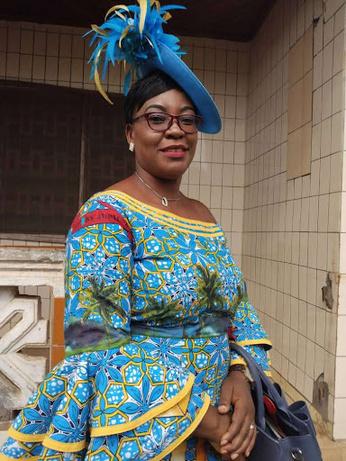
I came in contact with the founder/CEO of this magazine, Dr. Ada Omile some five years ago and it has been amazing working with her and contributing to this magazine. The E.L. Africa magazine is a quarterly magazine that addresses the needs of school teachers with everything you need to know about education and leadership. This magazine focuses on very important and topical issues that affect the educational system in Africa and how to ameliorate for better performance; how to provide the necessary working tools for teachers for enhanced performance and for students to be fully engaged in schools. E.L. Magazine is rich with articles from diverse African countries which talk about shared experiences in various aspects of pedagogy and school administration and management It provides tools to build teachers to be good leaders in the educational domain
When I was told about this magazine and asked to contribute articles, I immediately accepted because as a teacher I was eager to contribute to bettering the educational systems in Africa through my own experiences as well as learn from the experiences of my colleagues in other countries I have been privileged to contribute some articles to the magazine such as:
“Reasons for Teachers’ burnout in Africa and how to mitigate them ” (2022)
“Focus on educational excellence by providing competitive compensation to school leaders and teachers to ensure that employees’ hard work is the number one priority in your region” (2024).
Writing these articles and reading other articles in the magazine is a big booster for me in my career because they have helped me to better my performance in school.
Congratulations to the team of the E.L. Africa magazine and may you continue to contribute to nation building in the education domain. More power to your elbows!
Dr.RaziaGhanchi-Badasie BrenthurstPrimarySchool SouthAfrica GautengEastDistrict
It is a privilege to reflect on what E.L. Africa Magazine has meant to my leadership journey Over the past five years, the magazine has been more than a publication - it has been a platform of ideas, a wellspring of inspiration, and a community that continues to shape educational leadership across the continent
I have had the honour of contributing three articles to the magazine: Collaboration for School Improvement [2022], Developing My School into a Learning Organisation [2023], and Policies are Worth More than the Paper they are Written on [2024]. Each article was both an accolade and a milestone in my professional life, allowing me to share my voice on issues central to school leadership while also affirming the importance of African perspectives in educational discourse. The opportunities to share my insights grew my efficacy as an educational leader. Knowing that my voice could resonate beyond my immediate school context was empowering.
Equally enriching has been the experience of engaging with the diverse range of articles written by fellow leaders. The stories, strategies, and reflections published in E.L. Africa has informed and inspired my own practice reminding me that leadership is both a deeply personal and a profoundly collective endeavour

Recently, I had the opportunity to present to ten different countries at the ACP conference, and I recognize that this milestone is rooted in the collaborative and visionary spirit that E L Africa embodies The magazine has consistently emphasized leadership that is innovative, inclusive, and transformative, and this has challenged me to lead with greater intentionality and courage
As we celebrate this special anniversary, I am grateful for the role E L Africa Magazine has played in my journey It has been both a mirror and a catalyst reflecting the best of African educational leadership while propelling me, and so many others, toward new horizons of impact.
I extend my heartfelt wishes to the magazine’s founders, editors, authors, and readers. May E.L. Africa continues to thrive, inspire, and shape the future of educational leadership across our continent.
Mrs.SomikaziE.Chabalala DistrictDirector/ChiefEducationSpecialist, GautengDepartmentofEducation SouthAfrica
When I first encountered the Educational Leader Africa (E.L. Africa) Magazine, I did not anticipate the depth of influence it would have on my work as a District Leader. District leadership is more than administration; it is about guiding schools, developing principals, addressing underperformance, and ensuring learners succeed. The magazine has become a trusted companion a mentor in print offering strategies, insights, and encouragement that have strengthened both my confidence and my practice.
Dr. Evelyn Mamman’s article, “Setting Goals for Meaningful Change in Schools” (September 2023), challenged me to rethink how goals are set in my district Previously, goals were often compliance-driven and disconnected from the realities of classrooms.
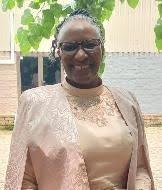
After engaging with Mamman’s insights, I began co-creating goals with principals. These new goals were sharper, measurable, and directly tied to learner outcomes The impact has been profound: principals now take greater ownership of their targets, and district plans are more aligned with school-level needs
Equally transformative was Dr Bubale Dan’s, “How School Improvement Becomes a Reality: The Performance ImpactBased Output Indicators” His emphasis on measuring impact rather than activity resonated deeply For too long, we tracked numbers workshops held, reports submitted without asking whether these activities translated into better learning Guided by this article, I refined our district monitoring system
We now use indicators that measure real change in classrooms, making feedback to principals more specific and actionable. This has been particularly valuable in underperforming schools, where data-driven conversations are helping to turn challenges into measurable progress.
One article that left a lasting impression on me was Dr. Frances Ufondu’s, “Recognizing Excellence in District Leadership” (June 2025). “Leadership is not only about fixing what is broken but also about celebrating what is working,” this perspective reshaped my approach.
I began publicly recognizing schools that demonstrated resilience, innovation, or progress even small steps forward. Principals felt seen, morale improved, and schools started sharing best practices with each other. Recognition sparked motivation, and motivation led to collaboration.
Mrs.SomikaziE.Chabalala
Perhaps the greatest gift of E L Africa Magazine has been the realization that my challenges are not mine alone Across Sub-Saharan Africa, leaders are grappling with similar issues from developing new principals to transforming underperforming schools
“The magazine provides not only strategies but also reassurance that I am part of a larger community of leaders striving for meaningful change.” This continental perspective has inspired me to adapt ideas, innovate within my own context, and persevere with greater confidence.
Today, I can see the fingerprints of E.L. Africa Magazine in the way I lead. It is visible in how I celebrate principals, in the collaborative goals we set, and in the sharper monitoring tools we use to track improvement.
The magazine has been more than a publication it has been a partner in my journey, helping me to grow as a leader and to serve schools more effectively. For that, I remain truly grateful.
Mr.WelcomeSiphoMhlanga Principal–HermannGmeinerHighSchool(Eswatini,Africa)
PresidentoftheAfricanConfederationofPrincipals
As E.L. Africa Magazine celebrates five remarkable years of existence, I am filled with immense gratitude and admiration for the journey it has undertaken and the impact it has made on educational leadership across our continent. The magazine has become much more than a publication; it has evolved into a vital platform that amplifies the voice of African school leaders and promotes the noble calling of principalship.
Over the years, E.L. Africa has consistently championed the cause of school leadership by sharing not only the best practices in education but also practical and context-relevant strategies to address the challenges we encounter daily. These insights have been invaluable, providing school leaders with tested approaches and innovative solutions that make a real difference in our schools
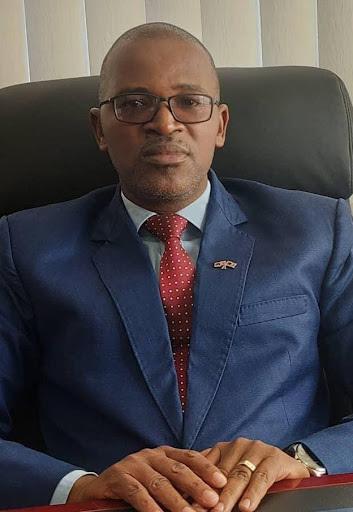
What sets E.L. Africa apart is its commitment to telling the authentic stories of school leaders across Africa stories that inspire, teach, and challenge us to do better. These narratives of resilience, creativity, and servant leadership remind us that the African education context is unique, and therefore requires unique solutions. The magazine has created an arena where experiences are exchanged and where we, as school leaders, can learn from each other and adapt ideas to suit our diverse environments.
Importantly, E.L. Africa has given African school leaders a voice—a platform to articulate our realities, aspirations, and triumphs. In doing so, it has strengthened our professional identity and highlighted the crucial role of school leadership in transforming education for sustainable development
As the magazine celebrates this milestone, I wish it even greater growth and influence in the years to come May it continue to reach more leaders, foster collaboration across borders, and remain a beacon of knowledge and inspiration for all who are committed to advancing education in Africa
Congratulations to the entire E L Africa team for this outstanding achievement The best is yet to come!
HileniMushisheniHaushona-Amukan Retired:OshanaRegion–DirectorateofEducation,ArtsandCulture
Oshakati,Namibia
OshanaRegionalCouncil
On a particularly good morning as Director of Education, Arts and Culture in Oshana Region, I received a magazine from my supervisor, sharing her thoughts of what she contributed to E.L. Africa Magazine. I read the entire issue and I became unstoppable and always looked forward to the next issue because each one came with a new idea or a solution to emerging issues in education.
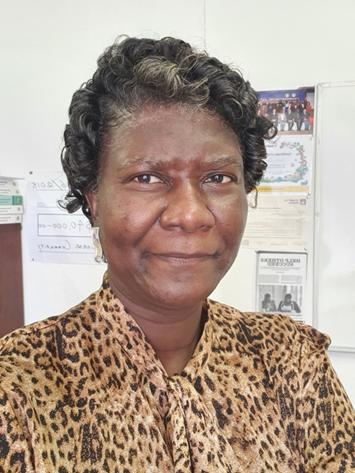
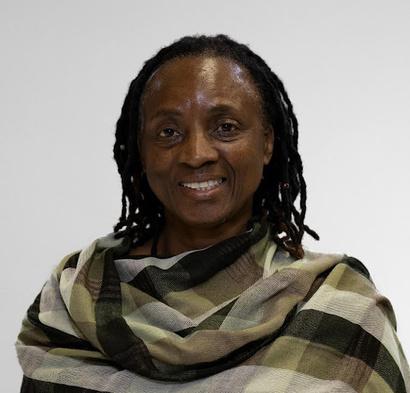

As soon as I received the E.L. Africa Magazine, I shared it with my principals and education officers to learn of good practices from other educationalists in Southern Africa. I mostly appreciated the online presentations offered on diverse topics, they were always educational and engaging. Also, I favored the magazine as the topics discussed are aligned to the themes and aspects in the National Standards and Performance Indicators for Namibia schools. One is always comfortable in learning from contributions of other educators; thus, I used the magazine as my reference point on education emerging issues.
Although I retired from public office, I continued reading the E.L. Africa Magazine and shared it with the educators within my education network. A good example is the contributions on Strategic Resourcing for Education in Sub-Saharan Africa. These articles created an understanding and benchmark for Namibia educators and politicians to investigate their practices and how they address their challenges. This is just the latest example of many.

Every issue I read adds value to my knowledge and skills. I realized that educational challenges are almost similar, however one’s interventions should be contextualized to your situation and needs
Long live to E L Africa Magazine, long live!
CynthyKaliinashoHaihambo University of Namibia, Faculty of Education and Human Sciences, School of Education,DepartmentofAppliedEducationalSciences
Windhoek,Namibia
KhomasEducationalRegion
While I cannot recall the exact moment I first encountered Dr Ada Omile and the E L Magazine, what I do remember vividly is how this publication became an indispensable companion in my professional journey Over the past decade, E L Magazine has never failed to captivate me I eagerly await each issue, knowing it will offer fresh insights and continental perspectives that are often absent from traditional academic literature.

Though I would not claim to be an expert in educational leadership, E.L. Magazine became my primary gateway to understanding this critical field. During my tenure as Head of the Department of Educational Psychology and Inclusive Education at the University of Namibia (2012-2021), I discovered that while institutional leadership workshops provided foundational knowledge about policies and responsibilities, it was E.L. Magazine that truly shaped my identity as an educational leader.
The magazine's greatest gift has been its ability to connect me with educational leaders across our magnificent continent. Through every article, I found myself part of a vibrant network of educators who shared similar challenges, aspirations, and triumphs The authenticity of these African voices created a sense of belonging that transcended geographical boundaries

A particularly transformative moment came in 2022 when E L Magazine published Mr Freeman's compelling article from Uganda about school counselors as essential members of leadership teams I immediately saw its relevance to my fourthyear Bachelor of Education students studying Life Skills a module designed to prepare future school counselors and life skills educators
The classroom discussions that followed were nothing short of remarkable. Students shared deeply personal experiences: some revealed how insensitive teachers had overlooked their needs, while others celebrated educators who had guided them through difficult periods. This single article sparked conversations that enriched our teaching and learning in ways I had never anticipated.
The impact continued when I introduced my Master's students to E.L. Magazine's article on Professional Learning Communities during their course on Collaboration and Teaching in Inclusive Settings. Their response was overwhelmingly positive they expressed genuine excitement about analyzing scholarship "written by Africans for Africa," as one student eloquently put it. This experience reinforced the critical importance of centering African voices in our academic discourse.
Since then, E.L. Magazine has become my first resource when seeking articles for analysis or case studies. The relevance, authenticity, and continental perspective it offers are unmatched
CynthyKaliinashoHaihambo University of Namibia, Faculty of Education and Human Sciences, School of Education,DepartmentofAppliedEducationalSciences
Windhoek,Namibia
KhomasEducationalRegion
Contributing to E L Magazine has been equally transformative When I wrote about University Preparation Programs for Educators, emphasizing collaboration among regional education leaders in sub-Saharan Africa, the research process itself became a catalyst for meaningful relationships Engaging with key figures across seven of Namibia's fourteen regions opened new channels of dialogue and collaboration.
The Director of Education in the Oshikoto region provided insights that not only enriched my article but also helped rebuild crucial relationships between the University of Namibia and Regional Directors of Education ultimately informing our curriculum transformation efforts.
Perhaps the most memorable validation came during my promotion application process. When told I was one article short of meeting requirements, I boldly submitted my E.L. Magazine contribution, despite initial uncertainty about how it would be classified. The next morning brought an unexpected phone call from the promotions office not to reject my submission, but to question why I had categorized such high-quality work as a "magazine article" rather than a journal publication.
That moment encapsulated everything E L Magazine represents: academic rigor, professional relevance, and continental leadership in educational discourse
As we celebrate this remarkable fifth anniversary, I am compelled to pose a question that reflects the magazine's extraordinary evolution: When will E L Magazine transition to journal status? In our current context, where decolonization rightfully occupies the forefront of Africa's educational agenda, E L Magazine has consistently demonstrated the scholarly depth, continental reach, and transformative impact that define the finest academic journals
GratitudeandCongratulations
To Dr. Ada Omile, Dr. Frances Ufondu, and the entire E.L. Magazine family: congratulations on half a decade of outstanding service to African education. You have created more than just a publication you have sparked a movement, built a community, and provided a platform where African educational voices can thrive.
Thank you for five years of inspiration, connection, and transformation. Here's to many more decades of continental leadership in educational excellence.
With most profound appreciation and warmest congratulations on this milestone achievement.
HelenaMiranda UniversityofNamibia,RunduCampus Rundu,Namibia KavangoEastRegion
As an academic, I have had the privilege of publishing twice in the E L Africa Magazine a truly inspiring and motivating platform for African leaders to share ideas and best practices for improving education systems across the continent
My first article in the magazine (Miranda, 2023), published in 2023, explored the topic of teacher licensing in various African countries, with a particular focus on Namibia’s efforts to ponder the question of how to enhance educational services through licensing reforms. The second article, co-authored with my colleague Natalia Intja, examined classroom management strategies that promote positive behavior and foster collaborative learning environments.

Both opportunities have significantly contributed to my personal and professional growth They opened my eyes to the immense responsibility we carry Africa authors to engage in bold, transformative discourses that can derive enough to bring about change in our education systems
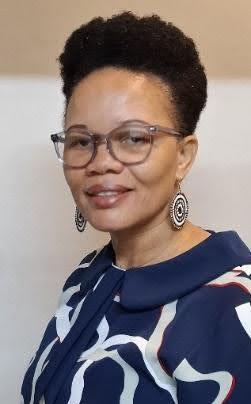
Currently, I am working on a self-initiated project that adopts a hermeneutic perspective to reflect on the experience of being a female leader in academia. Additionally, the classroom management article (Miranda & Intja, 2024) has evolved into a handbook that we aim to make accessible to both pre-service and in-service teachers across Africa.
I am deeply grateful to E.L. Africa Magazine for providing a platform to share my educational leadership insights. This opportunity has expanded horizons and inspired me to continue reading, writing, and contributing to the field of educational leadership.
References
Miranda, H (2023) Teacher licensure: How countries are ensuring that teachers are certified or improving their certification programs Educational Leader Africa, 4(13), 29-33
Miranda, H & Intja, N (2024) Effective approaches to classroom management for novice teachers: An African perspective. Educational Leader Africa, 5(7), 37-46
Dr.YaqeenAbdullahHabeeb Al-AzharInternationalCollege
Lokoja,KogiState,Nigeria
https://al-azharinternationalcollege.com
When I think about my growth as an educational leader, Educational Leader Africa Magazine feels less like a publication and more like a mentor I meet with regularly one that understands the realities of leading in African education and speaks to both the head and the heart.
From the very first issue I picked up, I was drawn into the stories of leaders from across the continent people navigating policy reforms, pioneering inclusive education, and building strong community partnerships. Reading their journeys reminded me that leadership is never a solo act. It is shaped by collaboration, adaptability, and a deep respect for context. Their voices pushed me to see beyond my immediate environment and to ground my own strategies in the cultural, social, and institutional realities around me
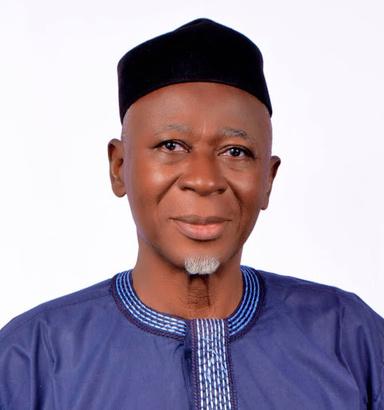
The magazine has also been my window into fresh ideas and practical innovations. Whether it was an article on curriculum redesign, strategies for empowering teachers, or the smart integration of technology in the classroom, I found lessons I could immediately apply. It struck a balance I deeply appreciate big, bold vision paired with realistic steps for making change happen.
Perhaps most valuable has been the magazine’s gentle but consistent nudge toward self-reflection. Its opinion pieces and case studies often leave me asking, “How am I leading? Where can I grow?” This has helped me refine my leadership style, listen more intentionally, and create spaces where both staff and students feel seen, supported, and inspired. Beyond the printed pages, the sense of community fostered by Educational Leader Africa has been a gift Through its coverage of events, interviews, and leadership forums, I’ve connected with peers and mentors whose insights and encouragement have strengthened my resolve during challenging moments
And at the heart of it all, the magazine has reinforced the kind of leader I strive to be one guided by integrity, equity, and a commitment to the well-being of every learner It has kept me anchored to the real purpose of my work: ensuring that every child has the opportunity to flourish
For me, Educational Leader Africa is not just something I read it’s a trusted companion on my journey, shaping my vision, sharpening my skills, and reminding me why I lead.
Dr.DanBubale(PhD) DistrictEducationOfficer, KayungaDistrict,Uganda
Bravo, to our E. L. Africa magazine for the wonderful publications characterized by a critical mass of information that has a growing impact on our schools in the district cherishing effective leadership strategies and practice shared by credible scholars in education. The periodic publications shared across the continent and beyond not only shape school leadership of different players but also transform schools to greater horizons for the benefit of all learners.
In education circles, the ideological conceptualism of transformative leadership stems from a collective mindset and united effort of every individual in the organization towards attainment of a productive long term impact for every learner's benefit This kind of leadership approach offers a new era of school administration by creating a window that draws a tap of ideas and innovation from several actors in the organization in order to maximize standard performance outputs.
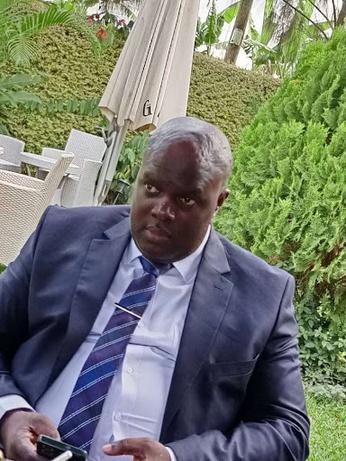
The concept of transformative leadership resonates around flesh leadership trajectories that tantamount to quality performance improvement targets. Such leadership is hugely driven by action and accountability centered on performance improvement ethos and a school development plan. School leaders are positively set to take on challenges as tasks and opportunities to deliver leadership of action and impact, not as rhetoric.
The current reality of school leadership requires a type of leadership that confronts the uncomfortable truths in governance capacity building and challenges the status quo so as to harvest resounding long-term education outcomes.
The practice of transformative leadership is clearly marked by a critical stance on strategic objective realism and performance standards priority It is worth noting that such a leadership type not only builds on professional excellence programs in schools but also mirrors constructive actions, innovation and substantive solutions
Moreover, available literature on leadership theory and behavior opines that leadership is about influence, relevance, action and the courage to lead staff from rhetoric into results Similarly, transformative leadership requires that school leaders firmly stand out to solve instructional challenges in order to recite quality learner performance outputs Such a leadership practice relates well with performance management practices, whereby school leaders are encouraged to have the rightful conversations and meaningful collaborations across a multi-generational workforce so as to produce quality outputs for impactful results.
Aware that education is commonly about access, quality and completion, today's education managers are obliged to create attractive and safe learning conditions that contribute towards high completion rates of the learners' education cycle. Thus, by creating the necessary conditions that embrace transformative leadership convictions by staff, will consequently merit curriculum quality and performance priority solutions for impressive results.
Dr.DanBubale(PhD)
WOULDYOULIKETOBE CONSIDEREDFORA
COLUMNINE.L.AFRICA
Drawing from the tenets of action theory and theory of performance, significantly have a direct bearing on the transformative leadership theories whereby all the three theories cement a constructive leadership strategy of a broader lens of a pool of talents from a web of participants in the organisation that are brought together to cause a progressive impact This piece of work is further informed by the systems theory that profoundly best describes a school as an organization where structures and systems are employed to guide school operations for excellent results.
MAGAZINE? SENDANEMAILTO ELAFRICAMAGAZINE@GMAIL.COM
In conclusion, transformative leadership is a must requirement practice that if well applied in education institutions can potentially impact on performance standards. That said, it matches the contextual realities in education circles, whereby different players at school and district levels carefully plan to invest in teacher quality enhancement programs that promote curriculum leadership convictions of staff to deliver sustained qualitative and quantitative results.
Dr.ThokolosiJohnTshabalala
As an educator and school principal, I have had the pleasure of engaging with numerous educational resources over the years Among these, E L Africa Education Magazine stands out as a beacon of insightful, impactful, and relevant educational content Having contributed a few articles to this esteemed publication, I am proud to witness and share how it has transformed the landscape of education across Africa and beyond
E.L. Africa Magazine has played a pivotal role in shaping educational practices, inspiring innovation, and fostering a community of dedicated educators. Its diverse range of articles, success stories, and expert opinions have empowered teachers, administrators, and policymakers to implement meaningful changes in their respective environments. The magazine serves as a vital platform for exchanging ideas, highlighting best practices, and celebrating achievements that drive the continent's educational development forward.
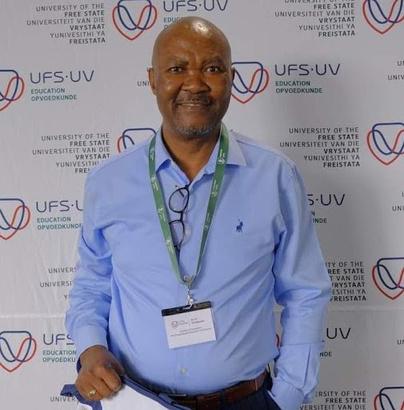
On a personal note, the magazine has significantly influenced my journey as a school principal and an academic. It has provided me with fresh perspectives, practical strategies, and motivational stories that have helped me navigate challenges and seize opportunities within my institution. The thought-provoking content has continually inspired me to strive for excellence and to cultivate a learning environment where both students and teachers can thrive.
I strongly encourage fellow educators, academic professionals, and stakeholders in the education sector to subscribe to E. L. Africa Magazine. Doing so will not only keep you informed about the latest trends and innovations but also connect you with other professionals across the continent and indeed the world.
CharlesM.Vonleh DistrictEducationOfficer
GreaterMonroviaEducationalDistrict#1D,Liberia
For more than 15 years, Charles M Vonleh has dedicated his career to improving the lives of Liberians through public health, education, and community development. As District Education Officer for Greater Monrovia Educational District #1D from 2018 to 2025, he oversaw 110 schools public, private, and faith-based ensuring high standards of teaching, learning, and school management.
Vonleh’s leadership placed teacher development at the heart of district progress. He organized regular training workshops, seminars, and conferences to introduce innovative teaching methods, strengthen classroom management, and build subject expertise. These initiatives raised academic performance across the district, with notable improvements in examination results and student engagement.

Partnership-building has been another hallmark of his leadership. He forged alliances with parents, community leaders, NGOs, and local businesses to provide scholarships, mentorship, and extracurricular programs. Through collaboration with CYGEC IT Solutions, Vonleh spearheaded technology integration establishing computer labs, training teachers in digital tools, and promoting e-learning platforms to boost digital literacy

E.L. Africa Magazine has been an important companion in my leadership journey. Since its inception, it has provided insights, shared best practices, and offered inspiring stories from across the continent. Many strategies I have implemented particularly in teacher motivation, stakeholder engagement, and the adoption of student-centered learning were informed or reinforced by ideas I first encountered in its pages
I extend my heartfelt thanks to the Founder and Co-Founder of ELCG/E.L. Africa Magazine for creating a platform that uplifts school leaders and keeps us connected to a broader movement of educational change-makers. My experience as District Education Officer has reinforced my belief that visionary leadership, grounded in collaboration, innovation, and continuous professional growth, can transform schools and change lives.
For me, leadership is not just about administration, it is about inspiration And I am proud to stand among leaders to learn from.
PullQuote
“Leadership, when grounded in inspiration and collaboration, transforms not just schools, but entire communities.”
MyFavoriteEducationalQuote
"The function of education is to teach one to think intensively and to think critically Intelligence plus character is the goal of true education." - Martin Luther King Jr.
QuickFacts
15+ years in public health & education
6 years as District Education Officer
Oversaw 110 schools in Greater Monrovia
Expert in teacher training & development
Advocate for technology in education
Strong community & stakeholder partnerships
Rev.Fr.NwabuezeDenis
I am Rev Fr Nwabueze Denis, a Catholic Priest of Awka Diocese, in Anambra State of Nigeria I am an Education Administrator I was once a classroom teacher, once an academic Dean and currently a Manager and Principal of St Michael’s Model Comprehensive Secondary School, NimoAnambra State in Nigeria I have BA and B Phil in Philosophy, Bachelor of Theology, Post – graduate diploma in Education and master’s degree in education management and administration.
As a school Administrator, I have a vision of setting my students on the path of self- discovery and development. Teachers play significant roles in achieving this milestone; hence, my leadership style does a lot by encouraging the teachers to move at the same pace with me.
We implement the vision and mission statement of the school.

The academic year begins with a retreat for all the staff of the school. The venue is outside the school and lasts for three days. The retreat comprises “on-going formation for teachers” prayer session, sports, equipping the teachers with instructional material for the year.
The newly admitted students resume 3 days before others. It serves as the orientation period and acclimatization. The vision of the school is made clear to them which emphasizes hard work as the means to success.
Tuesday manager’s assembly on weekly bases. A theme is chosen which is centralized on developing the students. Conference for the students every Friday which is basically on the opinion box. They are trained on how to access different offices and the structure of the school.
Weekly essay writing and novel summary.
Setting of the Academic year goal: Apart from the vision of the school, each academic year has a set goal meant to be achieved. The set goals are engraved on the strategic part of the school for easy reading to all students.
The general students begin the year after resumption with a two-day seminar aimed at balancing the different aspects of formation- intellectual, moral, social and spiritual. Two facilitators anchored it for the students, one for the junior and one for the senior students
As the administrator of the school, the following areas are given different attention for fruitful yielding: Students, Teachers, Parents and School environment
Supervision is very essential in improving students' learning and overall school effectiveness I adopted major supervisory skills like classroom visitation skills, communication skills, interpersonal skills, problem solving and decision-making skills, evaluation and feedback, professional development, motivational skills etc The teachers are built through motivation which comes, daily, weekly and at the end of the term and year. Opportunities for self- development are given to them, thus, they attend different training like – STAN, ELTAN etc.
The teachers are subject to quality assurance tests each term and also clinical evaluation which helps in upgrading the standard of education.
Rev.Fr.NwabuezeDenis
Parents-BasedApproach
The parents are very essential to school development Their positions are well respected and acknowledged, thus we have smooth collaboration We seek feedback through the parents which we received officially through Holiday’s Report written and signed by parents This report provides the school's weakness and strength The reports are respected with our approach towards them.
Students-BasedApproach
The students are engaged in different dimensions throughout the year.
Orientation course for the newly admitted students.
General seminar on resumption.
External direction by the manager which entitles meeting all the students individually.
Spiritual /counseling session for the students individually by their spiritual directors and counselor.
Environment-BasedApproach
Aesthetics is part of education. An organized environment builds an organized mind. Our approach towards our environment is topnotch. All our pathways are decorated with painted cape blocks. The classroom, refectory, halls, hostel and comfort rooms are all decorated and clean. The compound is beautified with flowers and trees.
OtherApproachesforSchoolDevelopment
The students are exposed to different extra- curricular activities like computer programming, graphics, debate, pressreview, music academy, sports academy etc
I make use of participative and transformational leadership style in daily management of the school Decision making is done collectively especially by different team leaders among the staff It makes the decision adopted as generally acceptable decision
Students are constantly motivated Values of education are reinforced by recognizing and rewarding academic excellence Any students that perform well in any competition both internal and external are rewarded by the school
OurRecordsforthePastYear
First position - in state Debate Competition
First position - in world Aids Day Debate Competition in Anambra State
First position – in state Solution Innovation Initiative Quiz Competition
Third position - in Spark Nation Competition (Debate)
Four goal medals and 3 silver medals in Anambra state Sport Competition
First position - in Anatuora Essay Competition in Anambra State
First position - in Awka Diocesan singing competition; boys’ school and many others.
The four aspects of formation are very essential in the formation and training of young minds- spiritual, intellectual, social and moral. The school programmes revolved through the aspects of the formation.
Finally, we adopt in our system the pillars of education- learning to know, learning to do, learning to be and learning to live together We proudly graduate balanced students who are very productive in society
AtsouAtchaYaoviIlétou InspectionofTechnicalEducationandVocationalTraining(IETFP) Lomé,Togo
LoméCommuneGolfeAgoè(LCGA)
Discovering E L Africa Magazine as a high school business teacher was a true revelation Each issue provided me with practical tools, innovative ideas, and above all, recognition of the vital role that African educational leaders play
Through its articles, leader profiles, and practical resources, the magazine supported my transition toward a more inclusive and participatory approach to school leadership. It encouraged me to value learners and colleagues alike, while strengthening the connection between schools and local businesses.
Since my appointment as an education inspector in 2024, my perspective has broadened. E.L. Africa remains a source of inspiration and guidance, helping me lead schools and teachers with greater clarity, humility, and strategic vision
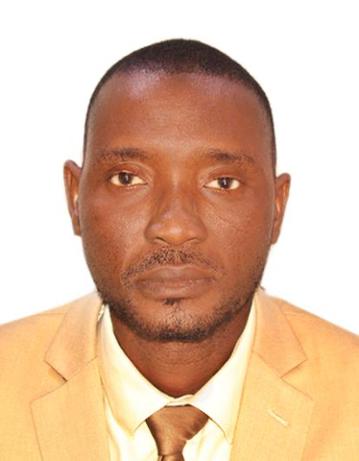
This magazine has been a companion, a catalyst for reflection, and a powerful lever for transformation It is a true honor to contribute to this special edition, which celebrates school leadership in all its forms
OlatunbosunAbiodunAjayi Principal,lloffaGrammarSchool,Iloffa OkééróLGA,KwaraState Nigeria,WestAfrica
As a principal serving in a vibrant and diverse educational landscape of sub Sahara Africa, having my voice featured in this commemorative edition is both a profound and esteemly honor and a humbling milestone It marks a significant moment in my journey as a principal at Iloffa Grammar school, located in Oké éró Local Government Area of Kwara state, Nigeria
In a region where education challenges often intersect with broader socio-economic realities, the role of a school administrator and manager goes far beyond just administering the school daily activities. It demands vision, innovation, and a deep commitment to transformative leadership. My experience has taught me that effective school management must be rooted in empathy, community engagement, and a relentless focus on students' success regardless of the odds

Your magazine has helped to create a platform for me to reflect on and acquire shared strategies that have worked in our local context: promoting inclusive education, investing in teachers capacity, leveraging limited resources for maximum impact, and creating a conducive environment where every learner feel seen, supported, and inspired to success and thrive in a complex competitive private and public schooling environment. It has also enabled me to connect with a broader community of educators who are equally passionate about driving change.
Being part of this edition reaffirms my belief that sharing our stories and testimonies strengthen our collective resolve. I hope my contribution adds value to the ongoing conversation around leadership in African schools.
Together through collaboration and innovation, we can continue to shape a resilient, equitable, and forward-thinking education system for future generations.
Dr.AkeunkengBeatriceNkemnge RegionalPedagogyInspectorofHistory(RPI),G.H.SBUEA
RegionalDelegationforSecondaryEducation
South-WestRegion,Cameroon
As the Regional Pedagogy Inspector of History for the SouthWest Region in Cameroon, I have witnessed firsthand the transformative impact of the E L Africa Magazine on my teaching milieu This invaluable resource has been instrumental in implementing learner-centered approaches, both within the classroom and beyond By fostering a cordial relationship between learners and teachers, I have observed significant growth in various skills, including critical thinking, creativity, and problem-solving.
The E.L. Africa Magazine's innovative layout and expert facilitators demonstrate a profound understanding of the learning process, showcasing that every learner possesses unique potential. Its insights have paved the way for inclusive teaching, enabling educators to cater to diverse learning needs and abilities
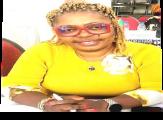
Personally, I have implemented "Hands-on skills" and "Communication skills" with remarkable success These approaches empower learners to develop essential life skills, such as teamwork, leadership, and effective communication By incorporating Bloom's Taxonomy and creating a two-way chart to align syllabus content with expected learner abilities, I have enhanced my teaching methodologies.
The E.L. Africa Magazine's insights have revolutionized my impact on leadership approach to teaching and learning. By embracing inclusive teaching practices, I have been able to cater to diverse learning needs and abilities, ensuring every learner has the opportunity to thrive. Witnessing the growth and development of my learners is truly fulfilling, as they apply theoretical knowledge in practical contexts and develop into confident, capable individuals.
I highly recommend the E.L. Africa Magazine to fellow educators seeking to enhance their teaching skills and make a lasting impact on their learners. Its practical advice, innovative strategies, and expert insights have been instrumental in shaping my leadership approach and improving learner outcomes. The E.L. Africa Magazine's commitment to promoting effective teaching practices makes it an invaluable resource for educators.
Dr.WillardManyara LEADConsultingGroup(forleadershipdevelopment)
ZimbabweEducationalTerritory
Being part of the educational leadership magazine family has exposed me to enlightening concepts such as:
School leaders are school managers whose chief function is to lead and that is to move institutions so they are ever in pursuit of betterness. Leadership is a function of any school manager/principal.
Leadership is a positive influence exerted by all in the school including educators. The ideal chief is the alpha leader, the school Principal.
That schools rise and fall on the basis of the kind of leadership that they are exposed to. High performing schools are a reflection of the Alpha leader, the Principal. The reverse is also true.
That if the Principal builds a strong team then the school will become an effective team The team building component rests squarely on the shoulders of the Principal
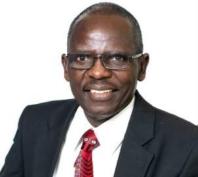
The school principal is the vision carrier. If he or she is visionless, the school will wobble in all undesirable directions. He/She has to dream the vision first and then share and sell it with his/her teams. However, for the vision to sell, the Alpha leader must have good people skills that help him connect. The idea that people buy into the leader first before they buy into their vision holds true. This is in keeping with the cliche’ “Touch a heart before you ask for a hand.” This means relationships come first in leadership before rules or assignments for that matter.
That leadership is dependent on the communication tool. Like John Maxwell postulates, “If everything rises and falls on the leader, the leader rises and falls on communication.
That the office of principal for one is an office of service. It's not the number of people that serve the Principals but the number of people they serve
RevDr.WilliamKwesiTettehBaako PrincePedroPreparatorySchool
AwutuSenyaEast,Accra,Ghana
President,NationalUnionofPrivateSchoolsGhana
As the President of the National Union of Private Schools Ghana, I can confidently attest that E L Africa Magazine has been a transformative force in the educational landscape of Ghana
The magazine has empowered proprietors, proprietresses, and educationists with cutting-edge insights, innovative strategies, and best practices that have elevated the standards of private schools across the country. Through its publications, E.L. Africa Magazine has not only equipped me with the knowledge and skills to tackle complex challenges but also inspired me to think outside the box and make informed decisions that benefit our students, staff, and the broader community.

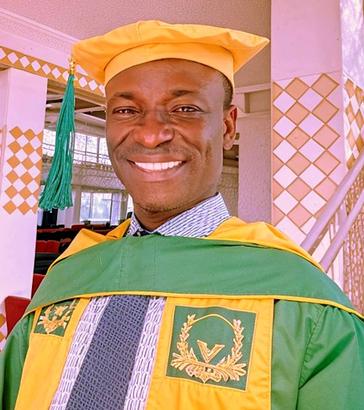
I applaud the magazine's dedication to celebrating impactful school leadership and its role in shaping the future of education in Sub-Saharan Africa I must also commend the visionary leadership of Dr Ada, whose initiative and commitment to excellence have been instrumental in making E L Africa Magazine a beacon of hope and innovation in the educational sector Her tireless efforts to promote quality education and support school leaders are truly commendable I am honored to be part of this community and look forward to continued growth, learning, and excellence.
By: Dr Mary C Okafor,LPC-C
Licensed
Professional Counselor-Supervisor
in Dallas, Texas, USA
Retired School Counselor
Financial Secretary of the Nigerian Mental Health Practitioners, USA, Inc
A School Counselor wears many hats
Nurse: Teaches students safety and survival skills, both physical and mental
Mentor: Guides and nurtures students to thrive to their utmost potential
Educator/Teacher: Teaches students academic, career and personal/social skills
Learning Agent: Knows how students learn and helps them overcome obstacles
Referee: Makes the call to refer students to services in and out of the school
Police: Protects students from impending harm and reports abuse to authority
Chef: Assigns lunch periods to students to ensure that they don't go hungry
Expert: Helps students with college admission process and scholarships
Confidant: Protects students' interest and trust, upholds confidentiality.
Parent: Is always there to listen to, care for, and support students' effort.
Advocate: Speaks up for the best interest and success of the students.
Professional: knowledgeable about and meets the demands of the profession
Entertainer: Creates a relaxing and fun environment for students
Cheerleader: Encourages students in their effort to achieve success
Mediator: Works with students to resolve any conflict or concern they have
Salad Bowl: Embraces diversity in the school and encourages inclusion
Career Expert: Helps students with career exploration and referrals
Scheduler: Creates students' schedules to meet their academic requirements
Event Planner: Coordinates meetings to discuss students' needs and concerns
Social Agent: Teaches social skills classroom guidance to students
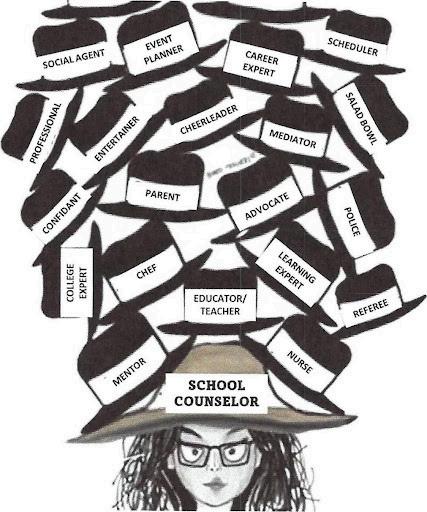
School Counselors wear many hats. They do whatever is necessary to provide students with a conducive environment for learning and success.
School counselors are the first arm of defense when it comes to identifying and providing students’ needs, whether it’s academic, personal/social/emotional, career and/or college readiness
School counselors are a one-stop-shop for all students’ necessities; from examining students’ abilities, strengths, interests, and talents to partnering with parents as they face the challenges of raising their children
School Counselors are go-to persons to resolve students’ conflicts, make schedule changes, test taking skills, study skills, student academic transcript, extra-curricular activities, make accommodations for students, prepare for college admission, fill out college applications, college scholarships, explore careers, internships, summer camps, and mental health issues
As you enter a School House you will locate the School Counselor actively involved in providing a multitude of services to students
In this article from Harvard Magazine, Max Krupnick reports on a study of the characteristics that make people effective members of teams. The researchers (David Deming and Ben Weidmann of the Skills Lab) found that IQ, personality, education, ethnicity, and gender did not predict who was a good team player, nor did a high level of skill at the team’s specific tasks. Rather, it was a set of skills that made some people “supercoordinators” of a team’s work: Encouraging fellow team members to try harder; Scoping out who on the team is best at something and letting them do that task; Being good at identifying others’ emotions – for example, noticing mental stress in a teammate.
Deming and Weidmann hope schools will spend more time teaching the skills of getting along and understanding one another, because jobs that involve teamwork are a rapidly expanding part of the U S workforce

The African Confederation of Principals' 13th Conference took place from August 25-28, 2025, at the Speke Resort Munyonyo in Uganda.
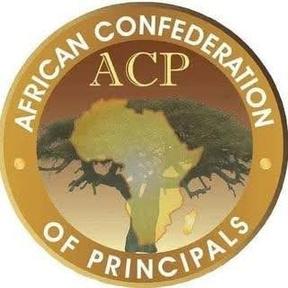
The theme of the 2025 conference was "Harnessing Innovation and Technological Advancement for Relevant, Equitable, and Inclusive Education in the face of Climate Change in Africa" . The event aimed to bring together education leaders from across the continent to connect, reflect, and lead with purpose in addressing key challenges. Also to share insights on climate change, innovation, and education, and promote professional development.

Mr. Welcome Mhlanga the ACP current president highlighted the organizations’ growth and renewed purpose since he took office in 2023.
Under his leadership, the ACP has developed a strategic blueprint to strengthen its role across the continent and increase membership from different countries. Executive had hosted productive Council meetings in Accra, Ghana, and Livingstone, Zambia, fostering collaborative and clear direction for the organization.
Though technology has now made it possible to connect across the continent, said Mr. Welcome, he discussed the similar challenges they all face, especially limited financial
resources to be effective on their jobs, and as an organization to grow and expand. Despite the challenges, he stressed that the ACP remains determined to grow its impact. He quoted that “A tree with deep roots does not fear the wind.”
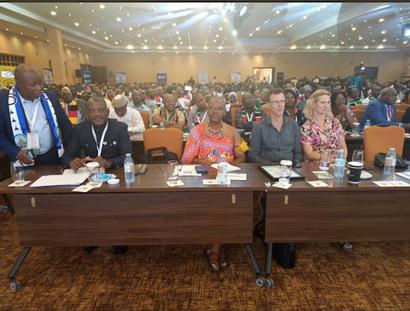
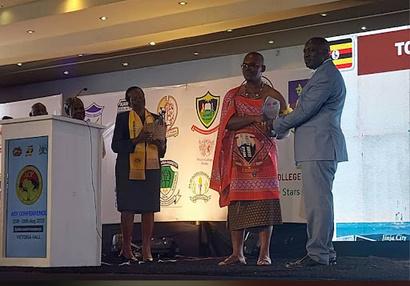

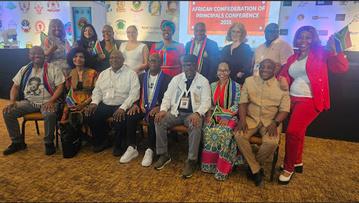




UNICEF has warned that steep global education funding cuts could leave 6 million more children out of school by 2026, around one-third of them in humanitarian settings.
Official Development Assistance for education is projected to fall by U.S.$3.2 billion, a 24% drop from 2023, with nearly 80% of the reductions coming from just three donor governments. The number of out-of-school children worldwide could rise from 272 million to 278 million, with West and Central Africa (1 9 million) and the Middle East and North Africa (1 4 million) among the hardest hit Côte d'Ivoire and Mali faced enrollment declines
Humanitarian programs such as school feeding and refugee education face sharp cutbacks, leaving children vulnerable to exploitation, child labor, and trafficking UNICEF estimates that there are 290 million children who will be affected, including students who are enrolled It urged donors to provide priority assistance to the least developed countries, safeguard humanitarian funding, and focus on the foundational aspects of education
According to the analysis, West and Central Africa faces the sharpest impact, with 1.9 million children at risk of losing out, while the Middle East and North Africa could see an increase of 1.4 million out-of-school children, alongside major rollbacks in all other regions.



The analysis finds that 28 countries are projected to lose at least a quarter of the education assistance they rely on for pre-primary, primary, and secondary schooling Among them, Côte d'Ivoire and Mali face some of the greatest risks, with enrolment at risk of declining by 4 per centequivalent to 340,000 and 180,000 students, respectively.
Primary education is expected to be hit hardest around the world, with funding set to fall by a thirddeepening the learning crisis and putting affected children at risk of losing an estimated US$164 billion in lifetime earnings.
UNICEF urges donor and partner countries to act now to protect education by:
Rebalancing education assistance to be more equitable and effective with a minimum of 50 per cent directed to least developed countries.
Safeguarding humanitarian education funding and prioritizing education as a lifesaving intervention alongside other essential services.
Focusing education assistance on foundational learning, concentrating on early childhood and primary education where the returns are the highest.
Simplifying global financing architecture in line with the UN80 Initiative to improve efficiencies
Expanding innovative financing without replacing core funding to education
"Investing in children's education is one of the best investments in the future - for everyone," said Russell "Countries do better when their children are educated and healthy, and it contributes to a more stable and prosperous world "




The Nigerian federal government has officially set 16 as the minimum age for admission into tertiary institutions. Education Minister Tunji Alausa announced the policy during the 2025 Joint Admissions and Matriculation Board (JAMB) meeting.
This decision reversed the previous 18-year age limit set by former minister Tahir Mamman, which had sparked concerns. Alausa said the age reflects a balance between cognitive maturity and academic preparedness and also warned institutions to comply strictly with the new rule
The minister cautioned institutions against bypassing the Central Admission Processing System (CAPS), the unified platform for processing all tertiary admissions in Nigeria Any admission conducted outside of CAPS would be illegal, and perpetrators would be prosecuted,” Alausa warned
He added that any head of institution found to be involved in admission fraud, age manipulation, or bypassing JAMB’s CAPS process would be held accountable under the law



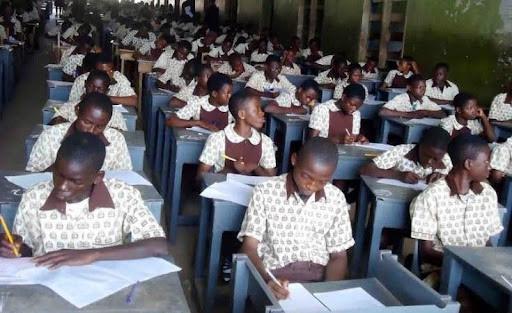
The Minister of Education, Tunji Alausa, described the new curriculum as 'future-ready'
The Nigerian government has introduced a new curriculum for schools that mandates Junior Secondary School (JSS 1) students to pick at least one trade subject to boost practical skills
According to a document developed by the Nigerian Education Research and Development Council (NERDC), the six practical skills available are Solar Photovoltaic installation and maintenance, Fashion design and garment making, Livestock farming, Beauty and cosmetology, Computer hardware and GSM repairs, Horticulture and crop production.
Speaking at the 2025 International Conference of the African Curriculum Association hosted by the NERDC on Monday, the Minister of Education, Tunji Alausa, described the new curriculum as 'futureready' and noted it was streamlined to meet the skills demand of the 21st century.



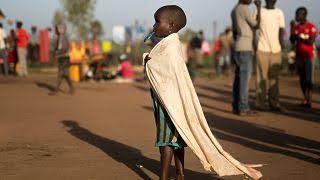
Uganda, already Africa’s largest refugee-hosting nation, is on the brink of a humanitarian emergency as the number of refugees nears 2 million With over half of them children, education is among the hardest-hit sectors
Since January 2025, nearly 600 people many fleeing conflicts in Sudan, South Sudan, and the DRC have entered Uganda each day. Among them are thousands of children, many unaccompanied, who dream of continuing their education despite the overwhelming challenges.
Schools like Arnold Primary are stretched beyond capacity. “Even the class is too full,” said Bakos Sarah Taban, a South Sudanese refugee and teacher. “You cannot really supervise the learners… during exams, some even sit outside on verandas to write.”
Volunteer teacher Abdalla Eis Mohamed, himself a refugee from Sudan, expressed concern for the youngest arrivals. “They came without families… they need to be guided,” he said. “If they want to follow their education, let us help them. Maybe in the future, they’ll help our children and the world.” UNHCR warns that without urgent international support, children risk dropping out of school, facing malnutrition, and exposure to violence As emergency funds run dry by September, the agency is calling for immediate action to protect the most vulnerable



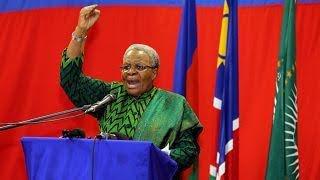
New Namibian President Netumbo Nandi-Ndaitwah announced Thursday that her government will introduce free higher education at state universities and technical colleges starting next year
Nandi-Ndaitwah, who was sworn in as Namibia's first female leader last month, made the announcement while delivering her State of the Nation speech to Parliament “I am pleased to announce that from the next academic year, commencing 2026, tertiary education will become 100% subsidized by the government,” she said
Namibia already provides free education in public elementary and high schools, though parents still typically have to pay for school uniforms, stationery, books and hostel fees The new policy would remove tuition and registration fees at universities and colleges.
There have been calls for years for all levels of education to be subsidized by the government in the country of around 3 million people in southern Africa. “We have heard your cries,” Nandi-Ndaitwah said. She said the policy was aimed at improving opportunities for young people amid problems of youth unemployment and poverty. Around 2.1 million Namibians are under the age of 35, according to official figures.
Two of Namibia's seven universities are state run and will offer free education under the policy. All of its seven vocational training centers are government-run and will also no longer charge tuition fees.

Taking time to care for yourself helps you bring your best self to the school and beyond.
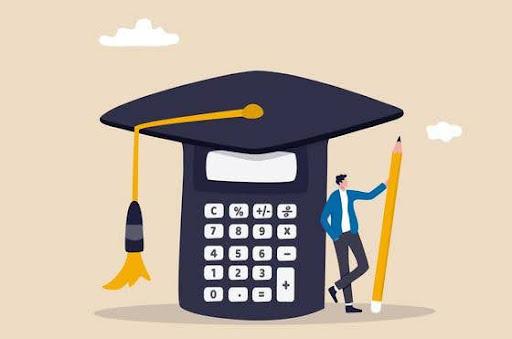
As educators and school leaders, it is easy to pour our time, energy, and attention into students, staff, and the daily demands of school life often at the expense of our own well-being. Yet, just as we encourage learners to thrive holistically, we must also remember that strong leadership begins with a healthy mind and heart. Prioritizing your mental and emotional well-being this school year is not a luxury; it is essential.
1. Acknowledge the Pressures of Leadership
The responsibilities of guiding schools managing resources, supporting staff, ensuring student achievement can be overwhelming. Recognizing the weight of these pressures is the first step toward addressing them Leaders who acknowledge their own challenges model vulnerability and authenticity, creating healthier school cultures
2. Establish Healthy Boundaries
Balancing professional responsibilities with personal time is critical Protect time for family, rest, and activities that bring joy By setting boundaries, you not only prevent burnout but also show staff and students the importance of balance in life
3. Create Space for Reflection and Renewal
Build moments of quiet into your daily or weekly routine whether through journaling, prayer, mindfulness practices, or simply stepping outside for fresh air. Reflection restores perspective and helps leaders remain grounded in their vision.
4. Seek Support and Connection
Strong leaders are not solitary figures. Build a support network of peers, mentors, or professional learning communities where experiences and challenges can be shared. Talking through difficulties can bring clarity and prevent isolation.
5. Model Well-Being for Others
When leaders take care of themselves, they give permission for teachers and staff to do the same. Schools become stronger when everyone sees that well-being is valued just as much as academic results.
This school year, choose to invest in your mental and emotional health By doing so, you not only strengthen your own capacity to lead but also create a more supportive and resilient school community where students and staff alike can thrive
